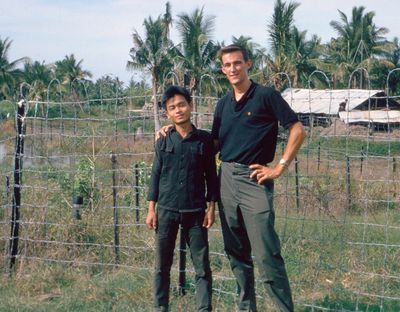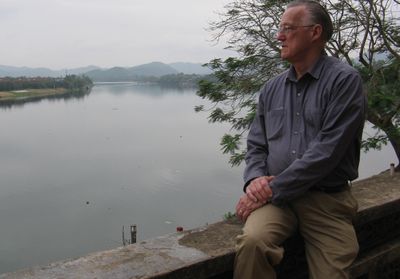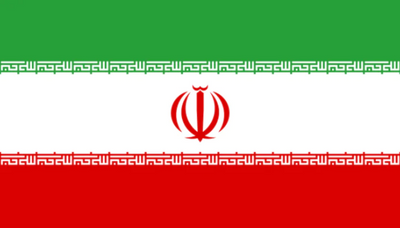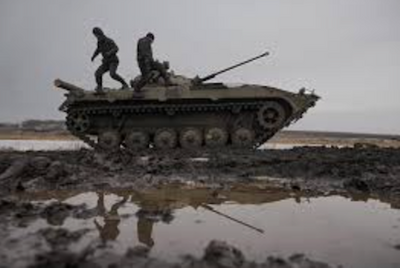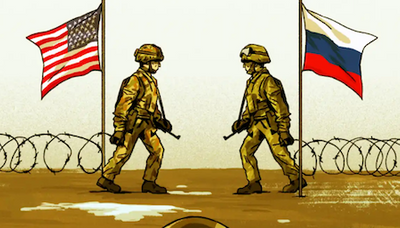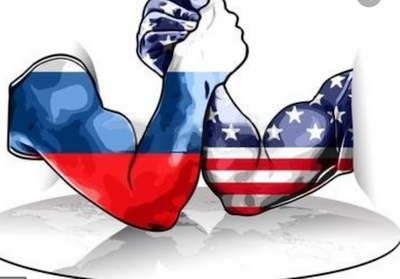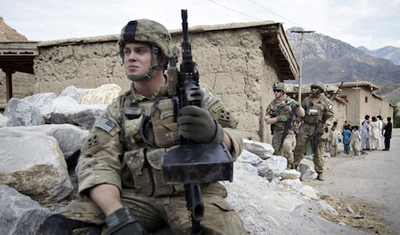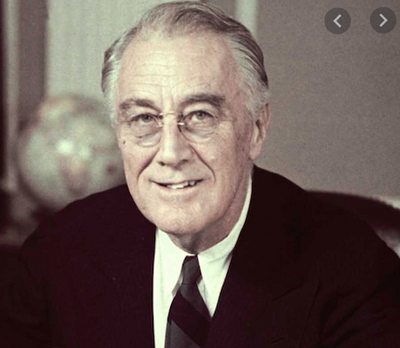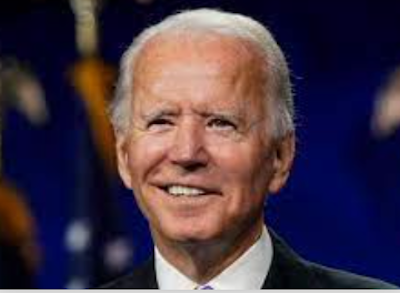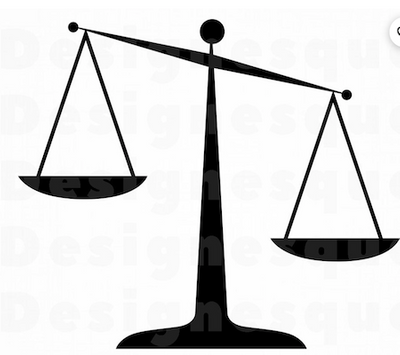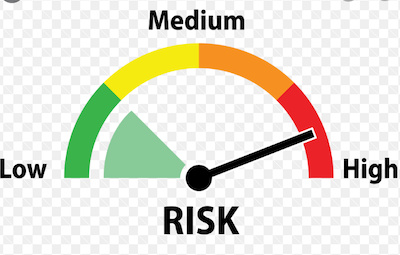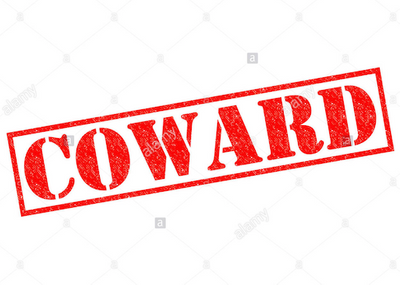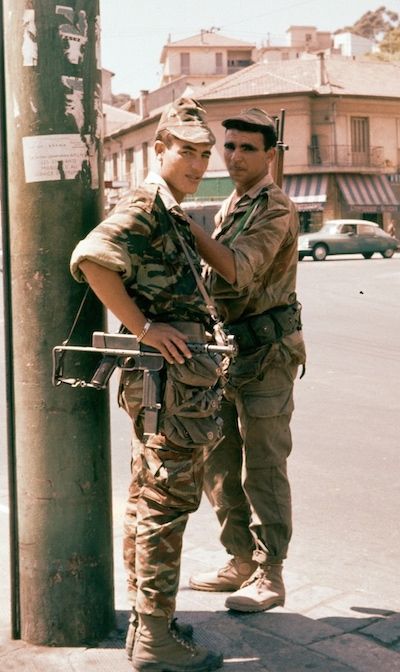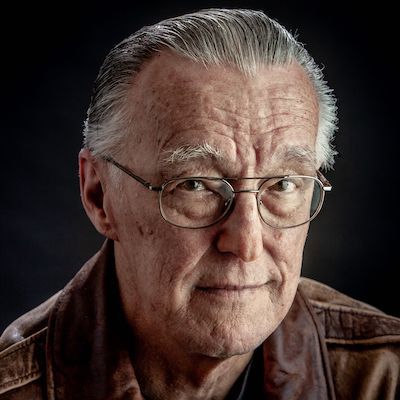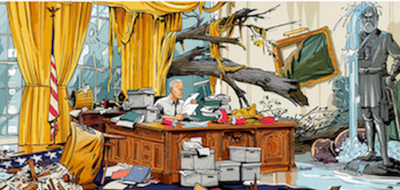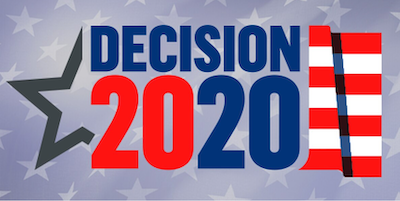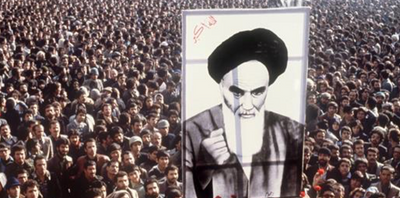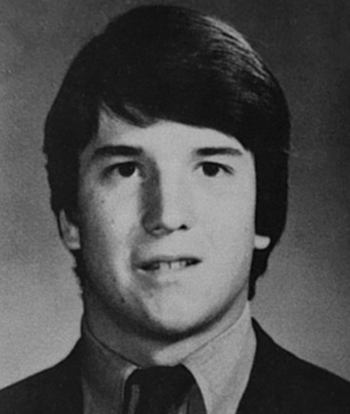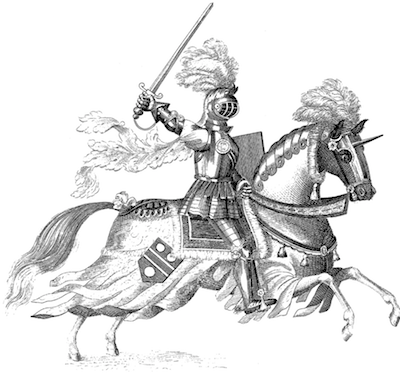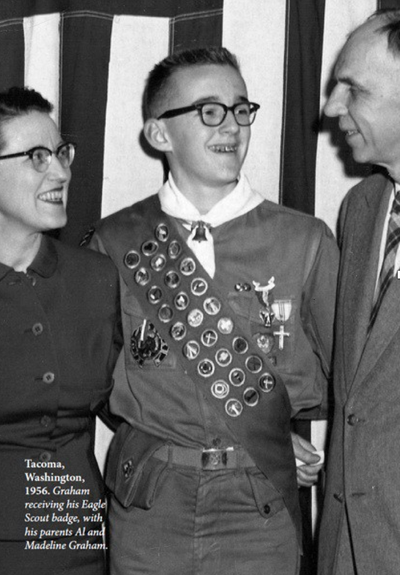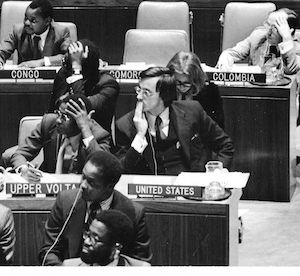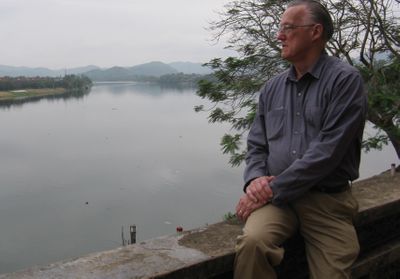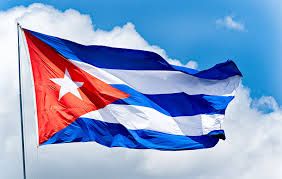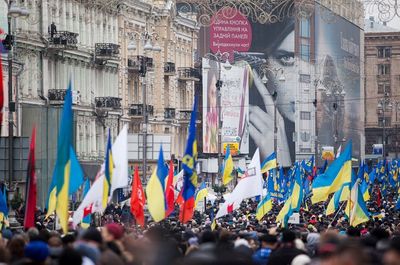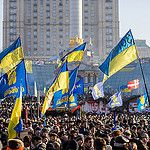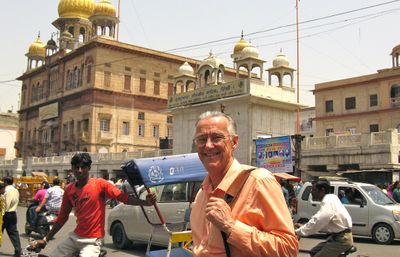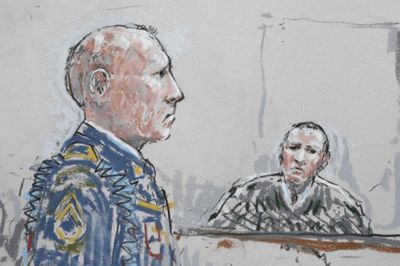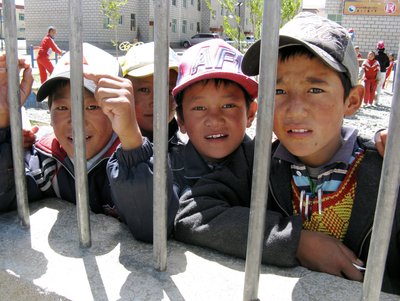Blog
A place to help create public policy and personal action that is visionary, effective, courageous, and compassionate

Welcome to a place for exploring insights and solutions to the public problems that test our times. This space is where I hope there will be discussion, co-learning, collaboration and—I hope—organizing actions. Your comments are welcome after each piece. Some of my own views come from fifteen years in the US Foreign Service, most of them spent way off the beaten track. Some come from my career since then as an activist, coach and mentor to activists, and President of Giraffe Heroes International, moving people to stick their necks out for the common good.
"Thank you John. I have deep respect for you, your work and your valuable insights. Few people are able to be as forthright and as honest as you. In the past, I have heard only hints of what you have shared."— Paul Morris
Sign Up for My Blog
If you haven't already, I invite you to to sign up to regularly receive my blog pieces, I regularly post some hopefully competent, provocative words on hot button issues to which I invite you to respond.. Privacy rules: I protect your data and will never sell or lend subscribers’ addresses to anyone. Ever.
You can also check out my blog archives, below.
Read the blogs here
Hey, He's Just a Pope
John Graham
Don’t get me wrong, I’m thrilled that “Father Bob” got elected. The more I read about his background in New Orleans and Chicago and Peru and his career as a global diplomat, the more he seems to be the inspired choice that his fellow cardinals were praying for.
What does worry me, however, is how many people—disheartened and frightened by the rising tide of anti-democratic forces all over the planet—want to see the new Pope as a man on a white horse, using his diplomatic savvy and Papal power to become a political counterweight to the Donald Trumps of this world.
That’s not his job. His power to affect change will not come from his political skills—which apparently he has in abundance—but from his role as a spiritual leader.
That doesn’t mean that Pope Leo can’t have a profound impact on world events.
War, poverty, inequality, migration, climate change— are all issues that are intensely political. Pope Leo’s job is to bring a message into individual minds and hearts around the world that every political, social or economic issue should be seen through a lens of compassion and morality.
Of course, autocrats and their acolytes will view any such analysis as lightweight and inconsequential. “How many divisions has the pope?” as Joseph Stalin famously asked.
moreIran: A Haunted Renaissance
John Graham
I’m betting you’re overwhelmed by the torrent of news coming at you, so much of it awful. I know the feeling, but I still want to talk to you about the closed-to-the-world nation of Iran and its place in the global rising tide of autocracy. An Iranian contact of mine has been sending me his observations, an extremely smart, well-educated and reflective man who’s given me permission to share his unedited words with you.
I see in them a fearful comparison between the loss of freedoms and the isolationism of today's Iran and the world Donald Trump and his MAGA acolytes would take us to if we let them. Soon I’ll send you what my contact has written about the US, in hopes his analyses help us learn from the Iranian resistance.
------------------------------
Iran: The Haunted Renaissance
It’s the Time: A Global Reckoning of Identity, Trauma, and the Human Spirit
“History does not repeat itself. But it does rhyme.”
In the spring of 2025, the rhyme is deafening.
From the resilient echoes in Tehran’s digital underground to the haunted landscapes of Gaza and Israel, from the fractured identity politics of the United States to the quiet, internal shifts across the Arab world, our era is defined by more than conflict. We are witnessing a profound global identity crisis, interwoven with unprocessed historical trauma, the performance of ego, and a deep, often unacknowledged, hunger for authentic belonging and meaning.
moreBecoming a Citizen Peacebuilder
John Graham
Rajmohan Gandhi, the grandson of India's founding father, honored me by asking me to write for his new magazine, We are One Humanity. The purpose of his initiative —indeed the purpose of this man's whole life—is to invite everyone to explore ways of preserving or restoring goodwill, human rights and democratic ideals in our world.
I'm reposting my article here:
BECOMING A CITIZEN PEACEBUILDER
I'm honored that Rajmohan Gandhi has invited me to submit some thoughts for his ambitious and much needed new publication. I’ve known Raj for many years, and I’ve always been amazed by and grateful for his clear thinking, passion and honesty.
And especially his courage—a quality of character that seems so absent these days, an absence that, in my view, is a primary driver behind the ignorance, injustice, and violence that today are tearing our world apart. It is writ large in places like Gaza but is often toxic in the communities we, in other parts of the world, call home.
If I have learned one seminal truth in the 82 years I’ve been on the planet, it’s this: we each shape our outer worlds by the way we live our inner ones. Wars, race riots, lethal inequalities, social media venom—none of this descends on us from some dark cloud over which we have no control. No, these disasters are the inevitable expressions of personal demons too many people lack the courage to confront.
moreIt’s Time to Take away Biden’s Car Keys
John Graham
Have you ever had to take away an aging parent’s car keys? I have.
I remember how hard it was when my family, seeing that my dad’s declining mental and physical abilities made him a danger on the road to himself and others, took away his car keys. It wasn’t pretty— the family had underestimated how important driving a car was to Dad’s sense of self as vigorous and competent.
Now the Democratic Party needs to take away Joe Biden’s car keys and the risks of inaction are a lot higher than somebody getting hurt by a disoriented driver.
Biden’s recent days of trying to explain away his debate performance has not moved the needle in his direction. None of his post-debate presentations have been nearly good enough to relieve the doubts created by those disastrous 90 minutes watched by 50 million people.
The core problem I see—being almost exactly his age—is that Joe Biden refuses to accept the seriousness of his own decline, a reality that we saw with our own eyes, which will not be wiped away (see my commentary on the debate).
The most chilling statement from Biden’s ABC interview last Friday came in his answer to a question about how he would feel next January if Trump won the election. He said that what was important would be knowing that he had given it his all and had done his best—
morePlease Joe (and Jill) Get Real
John Graham
By now you’ve read opinions and analyses of Joe Biden’s debate performance. I add my views from the perspective of being almost exactly Biden’s age and having been a competent platform speaker for half a century.
Of this there’s no doubt: Biden tanked. He looked and sounded frail and uncertain. Where he should have countered Trump’s blasts of lies and invective with a clever mix of humor, anger and facts, he mumbled statistics. There was an appalling lack of energy and conviction in his voice. The debate was not a debate; it was a Sound and Light show in which style, posture, and tone were far more important than facts, and Biden either did not understand that or could not cope with it.
We’re now told that he had a bad cold. What BS! We’ve all had to play hurt from time to time. In perhaps the most important presentation of his life, Biden should’ve popped an Advil, sucked it up, and soldiered on. Laryngitis? Well, the next day he sounded just fine.
Poor debate prep? He and his staff had weeks to prepare. They knew Trump would direct a firehose of lies and insults at Biden with the hope of throwing him on the defensive and undermining his responses. As expected, Trump’s lies were so obvious that most of them should’ve been home run balls that Biden could knock out of the park with a mix of facts and nasty jabs, wrapped in Biden’s inimitable humor.
moreOld Man Biden is the Right Choice Now
John Graham
I’m exactly Joe Biden’s age so I can see myself in his shoes better than most. Actually, I almost went into politics myself when some pols here in Washington State suggested I run for Congress decades ago. That ship has long sailed but I’ve done demanding work in the US Foreign Service and continue to put in challenging work days in the nonprofit world and as a global peace-builder.
Now, like Biden, what I may have lost in stamina I’ve more than made up for with acquired wisdom, experience, stability and significantly better skills in communication and team work.
Like Biden, I’m slowing down physically. I can’t climb mountains anymore and my marathon medals just remind me how much fun it was to run for miles. The last time I ran was between gates in an airport, I wince getting up from a low sofa, and I needed a wide bike lane to feel safe riding the racing bike I just gave away.
In the interest of keeping what still works working, I work out every morning and walk 15 miles a week (and if I stumble on rough pavement, it has nothing to do with age!) Biden works out, bikes, and has a personal trainer to help keep him fit. Matched against the obese, sedentary Trump, who do you think is most likely not to finish a second term?
moreExploring the Risks That Matter
John Graham
Let’s face it, I told the Explorers Club in a speech November 11 in Seattle, there’s not a lot of unexplored real estate left on this planet. Other planets beckon, but perhaps not for everyone in this room.
And that’s OK, because after a lifetime of adventures and risk, I’m convinced that the most meaningful explorations any of us can take are not in pushing the limits of the map but pushing the limits of ourselves—challenging not just our courage but our compassion, seeking not to find a new world but to find solutions to the pressing problems in the world we already have. Finding, not a pot of gold, but a meaningful life anchored in service.
I didn’t see this truth for a long time.
I went to sea on a freighter the summer I turned seventeen. This was, mind you, way before container ships; cargo vessels then had crews of 50 or 60 really tough guys, all of whom were determined to teach me lessons they knew I would never get in school. I leave the detailed stories for another day except to say that the first port of call in Southeast Asia ended with a pitched brawl with local dock workers and a hangover that lasted three days.
I changed, and it was by more than a barroom brawl. I was not in mid-50s Tacoma any more. Roaming the Far East as a 17-year-old opened me to a huge vision of a wider world, pulsing with energy, colors and excitement. I wanted to explore it more—a lot more.
moreIf There's a Hell, Henry Kissinger is in It
John Gaham
There’s no doubt that Henry Kissinger was a complicated man, as shown by the torrent of fierce opinions published since his death.
I worked for the man and Vietnam was where I first began to hate him. A young US diplomat, I was a civilian adviser to the Mayor of Hué, one of the most dangerous places in the country during the last years of the war, at a time when any American there still in control of his senses knew we’d lost the war.
Kissinger and Nixon knew this too, and had begun to rapidly withdraw US troops soon after I arrived there in January, 1971. But the two men also knew they could not admit defeat. Both were concerned about America’s image—Nixon mindful of his own political fortunes and Kissinger more concerned that America’s global rivals would see a US defeat in Vietnam as proof of America’s weakness.
So the two launched a strategy called “Vietnamization” to promote the fiction that the South Vietnam could win the war without American boots on the ground. It was never more than a PR ploy to divert attention from the fact that the US has just gotten its butt kicked by a small, poor nation few Americans had even heard of when we began fighting there.
moreA Personal Battle in Vietnam
John Graham
As you may know, Gordon Lightfoot recently died. You may have memories of the Canadian singer/songwriter’s work. My memory is that he changed my life.
In 1971-72, as a US Foreign Service Officer, I was Advisor to the city of Hué, South Vietnam. I’d volunteered for Vietnam because being in a shooting war was one adventure I’d not yet had.
I was an adrenaline addict, drawn to war zones and high, dangerous mountains. I’d asked the State Department for the most dangerous job they had in Vietnam and they had definitely obliged. Hué, the site of the infamous Tet Offensive of 1968, was just south of the Demilitarized Zone between the two Vietnams and a constant target for North Vietnamese troops and Viet Cong guerillas. Some of my work involved dealing with Viet Cong undercover agents in the city. I was an easy target for snipers and car bombs. At first I loved it—the hair rising on the back of my neck, the shadows in the night… It was all fuel for a self-absorbed and shallow life.
But my most significant battle in Vietnam was an inner one. The war became more than just the source of the next biggest thrill—a killing field where my actions endangered more lives than my own, in a war which I soon came to regard as stupid and unwinnable. I was in Vietnam as a mercenary, paid in adrenaline instead of gold.
moreA Near-Miss That Almost Changed History
John Graham
The Iran Hostage Crisis Re-visited
In November of 1979 the staff of the US Embassy in Teheran was taken prisoner by mobs controlled by the Ayatollah Khomeini. Two months of diplomatic pressures and direct threats hadn’t freed them.
But in early 1980, I came close.
I thought I knew then why I’d failed, but I didn’t know the half of it. Decades of investigative reports have now revealed the truth. Any efforts to free those hostages before the U.S. Presidential election that next November would have been undermined by powerful operatives in Ronald Reagan’s election campaign who saw that keeping the hostage crisis on the front burner would be a fatal blow to the chances of Jimmy Carter winning a second term.
I was at the time an American diplomat at the US Mission to the United Nations in New York. I’d been ordered not to talk to members of the Cuban delegation, our sworn enemies since Castro’s Communist takeover there. I thought that was stupid, so I talked often with the Castro Cubans, usually in bars well off the UN campus. They were baseball nuts as was I, so baseball became a vehicle for establishing respect and friendships with these people on the US hate list. It also led to an exchange that could have freed the American hostages in Tehran a year before they were finally released. Here's the section of my memoir, Quest, that gives you that story:
moreTo Leak or Not to Leak?
John Graham
The recent security breach by a young idiot video-gamer out to impress his friends was worse than you think. It could end up being one of the worst security breaches in the history of US intelligence operations.
It should never have happened. It’s crazy that anybody in the US government would consider giving a top-secret clearance to a naïve, unqualified kid in the National Guard. The real damage has yet to be fully known, but it’s already clear that US intelligence services are the laughingstock of their counterparts around the planet, friend and foe. As well they should be.
In the 70s, in the middle of the Cold War, as a US Foreign Service Officer, I was a member of NATO’s top secret Nuclear Planning Group (NPG), charged with planning how a nuclear war might be waged—and “won”—in Europe. It was a very prestigious job and a steppingstone to higher rank. I was given a Top-Secret Umbra clearance—plus a clearance above that that allowed me to spend a week at a secret facility in New Mexico learning about specific nuclear weapon designs. The idea was to learn how to target the right weapon to the right target (maximize blast in order to knock down buildings; maximize radiation to kill people).
moreUkraine—Even Now, a Possible Path to Peace
Yes, I’m writing here about peace. But let’s be clear: The recent atrocities committed by retreating Russians north of Kiev—added to their relentless bombing and shelling of civilian targets all over Ukraine—have made any peace-building initiatives much more difficult. Still, this evil madness will end someday, and those with the will and skill to build a peace must be ready. .As an experienced international negotiator, I have some ideas.
You wouldn’t know it from the media, but this war in Ukraine is far more complex than just a Russian attempt to crush an obstreperous neighbor whose independent actions threaten a resurgent Russian empire.
A good part of what’s driving the fighting is long simmering civil strife between Ukrainian-speaking citizens in the western part of that country who favor closer ties with Western Europe, and Russian-speaking Ukrainians living in the far eastern part of the country (Donbas), who have close economic and cultural ties to Russia.
I was involved in efforts to resolve that strife eight years ago. As Director of Giraffe Heroes International, I’ve gotten involved in tough peace-building efforts when it seemed my experience and expertise as a former US diplomat could make a difference. In July, 2014 that work led me to a five-day conference held in a magnificent old hotel perched on a mountaintop in Switzerland above Lake Geneva. I was there, not to mediate, but to support, encourage and facilitate the dialogues.
moreCould Putin’s Invasion Go Nuclear? A Former NATO War Planner Assesses the Odds
Will a nuclear war start in Ukraine? Is that even possible? Maybe we’re just watching a Netflix re-run of Dr. Strangelove.
No. It’s possible. As someone who once planned nuclear war for NATO, I can tell you that events in Ukraine have moved us closer to Armageddon than anything since the Cuban Missile Crisis.
Putin said two weeks ago that he’d placed Russian nuclear forces in “a high state of readiness,” but NATO intelligence has picked up no sign as yet of the actual movement of warheads and launch vehicles out of locations where they are stored. That’s a good thing.
But the possibility of nuclear war is still what motivates NATO’s refusal to create a “no-fly zone” over Ukraine, a move that would carry the risk of widening the war beyond Ukraine, up to and including a nuclear response from an irrational and unpredictable Russian leader.
Here’s how I’d assess the current odds on a nuclear war starting in Ukraine:
First, the stakes in this war get higher with every public comment made by the leaders of NATO, Russia and Ukraine, ratcheting up tensions and providing incentives for increasingly risky behavior.
Putin has made it plain he sees the war in Ukraine as an existential crisis where a Russian defeat would threaten the very existence of the Russian state. He sees Ukraine as an integral part of Russia, intertwined by over 1,000 years of history, ethnicity, geography, and culture. Putin has fumed for two decades over NATO’s eastward expansion following the collapse of the Soviet Union. Now he sees expansion of NATO into Ukraine as a dagger pointed at Russia’s heart.
morePutin Has Already Lost This War
“There are decades where nothing happens; and there are weeks where decades happen”–Vladimir Lenin
I was wrong. A month ago I predicted that Putin’s massing of Russian troops on the border of Ukraine was a bluff—that he was too smart to launch a full-scale invasion because the costs would far outweigh the benefits.
But I was not as wrong as Putin, who grossly underestimated the strength of Ukrainian and global resistance as well as overestimating the capacity of his own forces to overcome it.
The military situation is changing by the hour but as of March 8—
In the north, Putin’s forces have made far less progress than anticipated. His attacking columns have often been tactically clueless, poorly supplied and undermotivated, using tanks and trucks so poorly maintained that they don’t dare leave paved roads in the middle of Ukraine’s annual season of mud.
In the south, Putin’s forces have made better progress, but only because they’ve shifted tactics from infantry attacks to wholesale and often indiscriminate bombing and shelling of civilian populations.
Throughout the country, Ukrainian resistance continues to be far fiercer than the Russians expected, bolstered by determined citizen militias fighting to defend their home turf and inspired and led by a media clown who is rapidly becoming the Churchill of our times.
morePutin is Bluffing in Ukraine: he thinks he can get what he wants without a fight.
Hell, yes, it’s scary.
125,000 Russian troops are poised on the border with Ukraine. The US has put 8,500 soldiers on “high alert.” NATO is sending jets and ships to the region as well as shipments of arms to Ukrainian forces.
After years as a NATO war planner, I know that one miscalculation by either side could mean a face-off between nuclear-armed opponents.
But this is no Cuban missile crisis—at least not yet. Putin is too smart to deliberately launch a full-scale invasion of the Ukraine, with all its risks and costs—not when he’s convinced that he can get what he wants without fighting.
Putin’s aims are political—and he intends to achieve them through a clever playing of his cards, with military threats his ace.
Most immediately, Putin wants greater Russian control over Ukraine, a country he sees as part of Russia, culturally and historically, and a place with enormous strategic importance as part of the land buffer between Russia and the rest of Europe. And he knows that a Ukraine that faced down Russian threats could be a model for other vassal states, like Kazakhstan (where Russian troops were crushing protests in January), to see how hard they can poke the bear.
moreTRUST THEM? ARE YOU KIDDING?
Unless you’re Donald Trump or Ebeneezer Scrooge you gotta be happy that President Biden got his bipartisan infrastructure bill passed and that America will finally fix a decades-long backlog of repairs and upgrades.
But that infrastructure bill, in today’s super-polarized world, was the exception. Even though its benefits are hugely popular in red states and blue, there were still weeks of petty foot-dragging before House leaders finally dragged it through.
It wasn’t politics that almost torpedoed the bill—it was the breakdown in fundamental levels of trust—trust that progressives and moderates would each do what they said they would, and that in the end enough Members would put the common good over personal preference and ambition.
They finally did, but watching the House almost turn this slamdunk into a disaster demonstrated to the entire country just how dysfunctional this nation’s politics have become.
If Congress also passes a version of President Biden’s Build Back Better legislation later this year it will be without a single Republican vote. And there is no voting rights legislation in sight, no immigration bill, and no national policies on police reform, a living minimum wage, or relief for crippling student debt. No serious effort to narrow the toxic gap between rich and poor and probably no change in America’s status as one of the two countries on the planet without paid family leave.
moreFacebook, the Company You Love to Hate
Frances Haugen, the Facebook whistleblower, has leaked thousands of pages of internal company documents showing that Facebook, in order to increase its profits, has continually operated against the public interest. It has spread disinformation on crucial subjects like Covid and election integrity, undermined the self-images of vulnerable teens, further polarized the American electorate and supported violent extremists like the ones who attacked the Capitol on January 6.
The “Facebook Papers” describe the company’s control of what each of us sees in our Facebook feed, using sophisticated algorithms and machine-learning to learn from our past behaviors who we are, how we behave and what we like and don’t like. Then it shows us messages its research suggests we are most likely to want to see and respond to.
Facebook says it just wants to help individuals make the personal connections we want to make. But the leaked documents show that its real goal is to maximize the volume of user engagement of any kind because that’s what maximizes the volume of ads it can show and the revenue it makes from those ads.
It’s all about money, not your personal connections.
moreTax the Rich! It’s Time
In the summer of 1964, on a year-long global journey by bus and hitchhiking, I found myself in the middle of one of the worst famines in history. I was on the Ethiopian plateau, 10,000 feet above sea level, and it would be the most godforsaken place I would ever see. Hidden from the world in this barely accessible place,peasants wrapped in rags or even old newspapers huddled in the bone-numbing rain and cold. At everystop, crowds of them surrounded the bus to beg. Many of them were lepers or blind. Many were children withdistended bellies and death stares.
Decades later I can still see the vacant eyes of those starving people and still remember the anger and confusion I felt that nobody seemed to give a damn about these tens of thousands of people dying. 300 miles south, the corrupt dictator who ruled the country and his cronies lived in luxury. And wealthy countries in Europe, and the United States, seemed not to even notice. I wrote articles for the Boston Globe about what I saw but none of them did any good. Those people died and I felt complicit because I could do nothing to stop it.
But the experience changed me even if it didn’t save lives. Of course I knew that there would always be rich and poor. But since that experience in Ethiopia I’ve never been able to accept the continuing indifference of the rich to the sheer level of misery caused by poverty, disease and violence—scourges that wealthy people and governments could greatly ease but don’t.
moreHow the Rich/Poor Divide is Tearing This Country Apart
A few days ago, my daughter and I carried out her wild idea of re-creating the Last Dinner on the Titanic. It was a daft way of celebrating our own rescue from another sinking passenger ship exactly 41 years ago.
She made cocktails, an elaborate appetizer, and an extravagant dessert. I did salad and meat, both of us following the recipes used on the Titanic. We had to assemble truffles, paté de foie gras, filet mignons, shrimp, saffron, asparagus, artichoke hearts, plus vast quantities of eggs, cream, butter and of booze—champagne, Chartreuse, Madeira, red wine, and cognac.
Hours of work later, we had four of the eleven courses that were served to the first-class passengers on that fateful night that some of them did not survive.
The meal was the epitome of conspicuous consumption, of wealth-flaunting, and of calories-be-damned, full speed ahead. It’s a wonder they didn’t die in the dining room, before the ship hit the iceberg.
Below decks, in steerage, the menu included gruel and boiled potatoes. Gruel. On the menu. And so little room in the lifeboats that three quarters of the steerage passengers drowned.
That whole cooking experience had me looking at the chasm between the rich and everybody else in the US now and seeing a match to that earlier era’s excesses of the wealthy, and its disregard for people who weren’t rich enough to be up there in that posh dining room, eating truffles.
moreIn Memoriam: The Grand Old Party
It was inevitable that rightwing loonies would cry “fraud” in the California election that kept Governor Gavin Newsom in office. Never mind that Newsom won by two and a half million votes, or roughly 2/3 of those cast. Even before the polls opened on election day, Newsom’s opponent, Trump wanna-be Larry Elder, contended, without a shred of proof, that there were already “millions” of fraudulent mail-in ballots. And former President Donald Trump, never bypassing an opportunity to sabotage democracy, also screamed foul, asking before the vote: "Does anybody really believe the California Recall Election isn't rigged?"
How could Trump resist? The California recall election was a great opportunity for the Liar in Chief to keep the pot bubbling under his false, mindless, cynical claims that he won the 2020 vote, a relentless campaign that’s so twisted too many American minds that 70% of Republicans still say that Biden did not win. Never mind that there are overwhelming, incontrovertible, relentlessly triple-checked investigations that show that he did.
You have to give Trump and his acolytes credit. In the most powerful and one of the best educated countries on earth, he’s managed to create an alternative universe in which, for many people, truth and facts are no better than any individual’s opinion, no matter how completely uninformed that opinion might be.
moreHow to Fight Our Homegrown Nazis and Win
Richard Spencer is the most infamous summer resident in Whitefish, Montana, a mostly liberal, affluent resort town, nestled in Trump Country in the Rocky Mountains.
Spencer was the main instigator of the 2017 neo-Nazi riot in Charlottesville that killed Heather Heyer and injured at least 19 others and he played a major role in the attack on the Capitol last January.
But his Whitefish story—detailed in the New York Times by Elizabeth Williamson—starts just after the 2016 vote when, enjoying his growing fame among the radical right, Spencer got involved in a minor listing dispute with Tanya Gersh, a local real estate agent. Seeing another bullhorn for his antisemitic views, Spencer expanded the dispute into a fullblown online attack on Gersh, who is Jewish. That brought in Andrew Anglin, the founder of the Daily Stormer, a neo-Nazi website, who quickly spread Spencer’s attacks. Anglin exhorted his followers online to “TAKE ACTION.” They did.
According to Williamson, Gersh started receiving hundreds of text messages, emails and even Christmas cards threatening her. Her voice mail filled up several times a day. Hateful comments about her appeared on real estate websites. Homeowners were afraid to list with her.
moreAfghanistan—Maybe Not the Disaster It Now Seems
I’m going to say something about Afghanistan that doesn’t jibe with what you’re hearing in the media, something that may even sound callous. Here goes—When the snap judgments and finger-pointing die down, I think history’s judgement will be that the long-term damage to American interests was less than we now think it is.
As a former US diplomat, one who witnessed the awful endgame in Vietnam, I don’t underestimate the loss of lives and treasure in two decades of this unwinnable war. I’m aware of the pain of so many people once again condemned to live under Sharia law. And I totally get the sadness and fury of American vets who are realizing that their sacrifices in Afghanistan—and those of their friends who died there—didn’t lead to the win they were told to expect, not for their own country nor for the Afghans many of them came to like and respect.
Nor is there any excuse for the failure of the Biden administration to start the evacuation earlier, with more urgency and less red tape. Sure, as the President pointed out in his address to the nation Friday, some chaos was inevitable when the endgame finally came to pass. But not what we’ve been watching over the last week.
moreWhy Not the Shot?
Why Not Knowing, or Refusing to Know, Can Kill You
The pandemic is resurging. The US is now averaging more than 100,000 new Covid-19 cases a day, the highest in nearly six months. The resurgence is driven in part by a deadly new strain of the disease, the Delta variant.
I want to focus on the other reason for the resurgence—the reluctance of tens of millions of Americans to get vaccinated, even though contracting the disease in its new variant carries a high risk of severe sickness and death.
What’s going on? The vaccines are safe, 95% effective (including over the Delta variant), and readily available. So why are so many Americans failing to protect themselves and others, including their own friends and families?
But why should I care? After all, I’m vaccinated and the unvaccinated make up more than 99% of new infections and deaths. And even in the very rare event that I still catch it (like a few of those partygoers in Provincetown), it’ll be no worse than a bad cold. Bottom line: I’m safe.
Why should I care? Those refusing vaccinations and suffering the consequences are mostly grown-ups making conscious decisions. Not only that, they are mostly clustered in those areas of the South and Midwest that most energetically buy into the fear mongering and anti-intellectual fabrications and conspiracy theories promoted by Donald Trump and the cowards in government and media who support him.
moreJanuary 6: A Far Closer Call Than We Thought
Two new books suggest that on January 6 we came far closer to losing democracy than we thought.
Landslide, by Michael Wolff, describes Donald Trump’s increasingly unhinged behavior after his election loss. In I Alone Can Fix It, Carol Leonnig and Philip Rucker detail how the top US military officer, Chairman of the Joint Chiefs Gen. Mark Milley, was so shaken that then-President Donald Trump and his allies was organizing a coup that he and other top officials discussed ways to stop him.
We now know from many sources that the paramilitary groups that spearheaded the assault on the Capitol on January 6 we’re no disorganized rabble. Many of their leaders were military and police veterans, and they had a plan. They knew that using a mindless mob to delay the formal counting of electoral votes by a few hours would not keep Trump in power.
They knew they had to aim higher. Much higher. They came within minutes and feet of their stated aim of capturing or killing Vice President Pence and Congressional leaders. At a minimum, they planned that their show of force would lead Congress to throw the election into the House of Representatives where Trump would be declared the winner.
moreAfter the Pandemic, What?
John Graham
The pandemic is easing in much of the United States. In the larger world, vaccines are finally beginning to flow from “have” countries to “have nots.”
As it ends in this country, I think it’s crucial not to rush onwards, without looking at these last, devastating months. There are huge lessons to be learned from what we’ve been through—about inequality, about race, about work, about ourselves—and we’d be monumentally stupid not to learn them.
I live not far from Mount Saint Helens, which famously exploded in May of 1980, devastating a huge swath of forestland, blowing down trees and burying them under tons of mud and ash. At the time, it looked like nothing could ever live there again. But within months, green shoots were forcing their way up through the ash, starting a cycle of rebirth and regrowth in a suddenly sunlit landscape healthier and more diverse than it had ever been before.
Lessons from nature play out everywhere. Without diminishing the costs and devastation of World War Two, a major reason why a defeated Japan and Germany rebuilt as quickly and effectively as they did was that they had to start from scratch, largely unencumbered by the outdated systems and infrastructures that burdened victorious post-war Britain and France.
moreAre We Headed for a New Cold War?
John Graham
A few days ago I was interviewed on Russian state television on a news show that draws over a million viewers inside Russia. The subject was President Biden’s trip to Europe and in particular his upcoming meeting with Russian President Vladimir Putin.
This is perhaps my 30th appearance on Russian media and I remain mystified why they keep asking me on, since I offer balanced views of issues the United States and Russia don’t agree on.
NTV, the network that airs the show, is controlled by the Kremlin so somebody in that government in charge of what’s broadcast knows that I tend to be a pain in the butt to both sides.
It’s been almost 30 years since my first appearance on Russian television. As leaders of the Giraffe Heroes Project in this country, Ann Medlock and I had been invited on to one of the very first live, uncensored, audience-participation television shows in the country. Our work in fostering civil society and personal involvement in public life was of interest to the new regime of Soviet President Gorbachev as he struggled to move his country out of a rigid, top-down communist system into one that welcomed such active citizenship.
We were interviewed by the host, Vladmir Posner, and then answered unfiltered questions from a live studio audience. At once a grizzled old World War II vet with a chest full of metals jumped to his feet and demanded to know why the United States was so intent on destroying the world with nuclear weapons when all the Russian people wanted was peace.
moreAfghanistan: America’s Wars Are Far from Over
Memorial Day 2021
President Biden’s withdrawal of American troops from Afghanistan will be completed before the deadline he set—September 11, exactly 20 years after the attacks on the US that were our reason for starting that long, unwinnable war.
As you know, the United States went into Afghanistan in December of 2001 to find and destroy the Taliban (the ultraconservative political and religious faction that ruled Afghanistan and gave sanctuary to al-Qaeda, the perpetrators of the 9-11 attacks).
But September 11, 2021 will not be the end of that war. We know where it goes from there because we’re replaying a script we wrote in Vietnam and Iraq.
There, as in Afghanistan, we fought the wrong war in the wrong place with the wrong methods.
In Afghanistan, it actually started out well. Within the first few months of battle, US forces had driven the Taliban from power in Kabul, destroyed al Qaeda bases, and chased the remaining al Qaeda warriors out of Afghanistan and into the mountains of northwest Pakistan.
But the Taliban forces we toppled had only retreated into the Afghan countryside and a guerrilla war started as soon as the main-force war ended.
moreIs Liz Cheney a Hero?
John Graham
Let’s talk about courage. For the last 35 years I’ve helped lead a global movement that inspires people to stick their necks out to solve tough public problems. So I’ve got some standing on the matter of what’s courageous in public life.
Let’s look at a woman many people in the last few weeks have cited for her courage.
Of course I’m talking about Liz Cheney, the far-right congresswoman from Wyoming, the daughter of Dick Cheney, the former vice president, an architect of the Iraq war, a pro-corporate, small-government warrior who was pleased to be known as the Darth Vader of American politics.
Until very recently, Liz Cheney seemed to be a chip off the old block. She was and is a pro-gun, anti-abortion, anti-regulation, small-government, deeply conservative Republican—pretty much the antithesis of my own politics.
But she represents her conservative state honestly enough and she fights hard for what she believes in. To have called her courageous until last winter, however, would’ve been a stretch. A committed bare-knuckle right-winger would’ve been more like it.
Then came Trump’s loss in the 2020 election and his relentless, unprincipled efforts to overturn the results by subverting the Constitution and inciting a violent attack on the Capitol.
moreReversing Reagan
John Graham
In his address to Congress last Wednesday, President Biden sketched out an agenda packed with “once in a generation” government investments that would touch nearly every corner of American life. It was a passionate and comprehensive defense of government as a force for good. It was Ronald Reagan—in reverse.
40 years ago President Reagan told the country that government was the problem—that it “is too big, and it spends too much.” His words came to define politics for generations, including Bill Clinton’s famous statement that “the era of big government is over.” Indeed, most of the Democratic party went on to operate in Reagan’s shadow for decades. Convinced that an outright embrace of big government would be political suicide, Democrats fretted about deficits and government spending, and generally favored timid, piecemeal initiatives that Republicans could—maybe—accept.
But when lack of government regulation brought the nation into the Great Recession, it was a big government move—a huge government intervention—that kept us from dropping into an all-out Depression. People noticed.
That “Come to Jesus” moment dealt a severe blow to the Reagan policy of small government, but didn’t finish it off. Barack Obama did little more than tiptoe toward the scale of action that was needed.
moreRethinking the Police in America
John Graham
As you know, the former Minneapolis police officer who killed George Floyd was convicted on two counts of murder and one count of manslaughter.
Since then there’s been nonstop coverage and analysis of the trial. Many people feared that the killer would get off because history shows it’s extremely difficult to get a murder conviction of a police officer.
Juries give cops enormous latitude and, if that wasn’t enough, in too many cases, key facts are omitted, evidence disappears, reports are twisted — the “blue wall of silence” descends—it takes a very brave cop to leap that wall and tell the truth about a law-breaking colleague.
In the Minneapolis case, however, there was a videotape of the murder from start to finish and the killer‘s conduct was so clearly wrong that even his fellow officers condemned it in court.
The great majority of Americans applauded the verdict, including many police officers and officials from all over the country.
But at the same time many people seemed to miss the crucial broader perspective—seemed to see this trial only as the bringing to justice of one arrogant, cruel man who thought he could get away with murdering a helpless unarmed black man and then hide behind his badge.
moreWhat’s So Great about Being White?
375 people have now been arrested, charged and intensively interviewed about their participation in the attack on the US Capitol January 6. A reliable picture is emerging of who they are and what motivated them.
It’s no surprise that they were overwhelmingly white and male and strongly influenced by Donald Trump’s campaign to overturn the November election
But it came as a bit of a surprise, at least to some, that only about 10% were members of known far right groups like the Proud Boys. And that the attackers as a whole we’re not under-educated know-nothings, as assumed by the initial media coverage, but in fact socially, educationally, and economically middle class.
The one unifying motivation, in both the white-collar and blue-collar rioters, was their fury at seeing white people in this country displaced by people of color in so many sectors of daily life.
It’s a change they perceive as leaving whites a threatened and beleaguered minority.
According to the interviews, it was this anger and fear of replacement, across social classes, and more than any other factor, that drove them to attack the government they’d been pledging allegiance to since they were children.
moreWho Gets to Vote?
John Graham
This should be a strange topic in a democracy with universal suffrage, but it has, sadly, become a very real question that could define our identity as a nation. Hear me out.
If you’ve been following the news, you know that the State of Georgia has just enacted the most extensive voting restrictions in generations and other Red States are not far behind.
The Georgia legislation introduces a raft of new oppressive laws aimed at disenfranchising voters, including curbs on mail-in and early voting, stiffer requirements for voter ID, absentee balloting and provisional ballots, and fewer drop boxes. It even makes it a crime to offer food or water to voters waiting in long lines caused by fewer polling places, voting machines and drop boxes.
The new law also expands the Georgia Legislature’s power over elections, which means that it can now more easily interfere with the voting in predominantly Democratic, heavily Black counties.
The Republicans who control Georgia’s government describe their new law as “long-overdue common-sense measures to prevent electoral fraud.” Never mind that there is nothing to prevent. Multiple audits affirmed the results of Georgia’s elections last year, and there were no credible reports of any fraud or irregularities that would have affected the results.
moreAtlanta and the Lethal Problem of Male Rage
John Graham
Last week, Robert Aaron Long, a 21-year-old white man, killed eight people, seven of them women, in three Atlanta-area spas. His motives seem to have been a toxic mix of misogyny, racism and bizarre ideas about himself and sex.
A patron of two of the spas, the Long grew up in a ultra-conservative Baptist church and appeared fixated on lust and guilt. He told police that he was a “sex addict” and that the women working there were temptations he couldn’t resist and so he had to eliminate them.
The fact that six of the women he killed were of Asian descent complicates his motives. There’s some evidence that Long was radicalized by Donald Trump’s racist campaign blaming China for Covid 19.
Long’s predation may also have been fueled by the long-standing trope of Asian women as vulnerable and passive—a great temptation for a bully. There’s also the fear and rage triggered in many men by a steadily increasing loss of male entitlement once conferred by traditional gender roles.
Put it all together and Long was experiencing a perfect storm of twisted motives.
Still—there are plenty of men who are misogynists, plenty who are racists and/or have twisted attitudes towards sex. Many are frightened and furious over losing status and power as others gain it. But they don’t respond by killing people. They find other ways, from domestic violence and sexual predation in the workplace to an inability to create and sustain respectful, loving relationships.
moreIs Joe Biden Our FDR?
John Graham
Is Joe Biden Our FDR? You may think, Well by God he is! Or you may see him as a socialist demon. Well fine, it’s a free country and I really want to spark respectful, fact-based discussions by these weekly talks.
Let’s start with the basics. We are in the worst peacetime crisis in a century. Lots of people are scared, depressed, frustrated, pissed off, or all of the above.
And last Thursday night this new American president starts a speech to the nation by telling us he understands our pain about what’s been going on, from dead friends and relatives to closed businesses and lost jobs, to going nuts trying to homeschool our kids.
He even pulls an up-to-the-minute count of Covid deaths out of his jacket pocket. Sure, that could be seen as a savvy, calculated move, but—as cynical as I am—I didn’t doubt that it was also a mark of his genuine deep concern.
But then Biden pivots and starts reeling off facts about ramping up the production and distribution of the vaccine. He says if things continue to go right, we could be back to some kind of normalcy, flipping burgers by the Fourth of July.
Did you believe him? After al the Covid lies from his predecessor, Biden came across to me as earnest, honest and caring.
moreJoe Biden's Values: Fact or Fiction?
John Graham
In the contest between Biden and Trump, I very much wanted Joe Biden to win and I’m very happy with the strong, quick moves he’s made to advance an agenda that makes this country the nation it can be.
Until last week.
Senate Republicans have shown us again and again that political courage is rare. It’s just that, with Joe Biden, I expected it to last more than six weeks.
In my opinion Biden made a serious stumble last week and it could cause long-term problems for American interests in the Middle East as well as call into question Biden’s key personal and campaign strength—his integrity.
You may remember that in 2018 thugs employed by the Saudi government brutally murdered Jamal Khashoggi, a widely respected journalist who’d been increasingly critical of the Saudi regime under the de facto leadership of Crown Prince Mohammed Bin Salman, known as MBS.
Following an exhaustive investigation, the United States government last week publicly identified MBS as the person who ordered the murder. This came as no surprise, given MBS’ reputation as an ambitious, reckless, violent despot who’s been scheming his way to the throne for years. Along the way, he’s broken everything he’s touched, including the nation of Yemen, where he started a war that’s devastated that country and empowered Al Qaeda there.
moreMars, Science and the Future of Reality
John Graham
I’m betting that much of your attention this last week was on quarantines and masks, and on scrambling to get a vaccine appointment.
If you’ve had time for politics, there’s the chess matches in Congress over President Biden’s $1.9 trillion Covid relief bill and a few of his more controversial nominations for top jobs.
With all that going on, did you also see the reports on the landing of the Perseverance rover on Mars? It was glorious.
The ingenuity, precision and perseverance of what NASA’s scientists have done seem almost beyond belief—even to me, a trained scientist.
First, this SUV size vehicle has to get to Mars and then be gently lowered onto the Martian surface—without busting any of its thousands of delicate components—in precisely the right place in an ancient lake bed.
NASA engineers have programmed the rover to travel miles over the next few years. Its movements will be guided by high-resolution cameras aboard a drone the engineers built to fly in the thin Martian air.
In one of its first assignments, the rover will drill down for samples of whatever used to live in that ancient lake—maybe not a smallmouth bass. They’d be happy to find algae or any other organic matter. That would raise the plausibility of humans living on the red planet someday.
moreAmerica's Back
John Grham
“America’s Back.” On February 19, with those two words, the new US president repudiated the go-it-alone policies of his predecessor that had led to bitter disagreements, escalating trade wars, and rejection of the alliances that have benefited America and its allies since the end of the Second World War
But a slogan is not a policy. Let’s look at what’s back and what isn’t.
Acknowledging the strains and shit storms have characterized America’s relationships with Europe over the last four years, President Biden assured European leaders that "The US is determined to reengage with Europe. To consult with you. To earn back our position of trusted leadership."
As a former Foreign Service Officer I was delighted to hear Biden reaffirm that America lives in a multipolar world where huge global problems like pandemics and climate change can’t be solved without collaboration and cooperation. Where trust and honest dealing are critical. Where approaches to opponents must be tough but clear-eyed and open to opportunities for improvement.
The Europeans, of course, welcomed Biden’s remarks as well, but not without some skepticism that even Joe Biden, a seasoned professional and their friend for decades, could deliver on what he’d just said.
moreTrump’s Acquitted; Now What?
John Graham
I don't blame you if you haven't been watching every moment of the trial of former President Trump for inciting an attack on the Capitol that killed five people as a raving mob ransacked the seat of American government, holding it for hours.
But some of the proceedings have actually been fascinating, especially new videos showing the extent of the violence and how close to injury or death key members of Congress and their staffs came on that day.
Donald Trump was charged with incitement of insurrection. For three days, House managers laid out a devastating case for conviction. Methodically, meticulously, they detailed the former president’s effort for months to undermine and overturn a free and fair election, culminating with his fomenting an attack on the Capitol—his final desperate effort to stop the certification of the new President.
He whipped his loyalists into a rage, summoned them to Washington, pointed them at Congress, and retreated to the safety of the White House to enjoy the show.
Given the powerful evidence against him, Trump’s lawyers had a weak hand to play. But that didn’t make any difference.
If an impeachment trial followed the same rules as a criminal court of law, Trump would have been convicted, but the Senate is not a court of law and an impeachment trial is a political event not a judicial one, and so Trump was acquitted because only seven Republican senators had the guts and integrity to cross him.
moreWhere to Be, GOP?
John Graham
Living Room Talk #17: Were you hoping, just for a couple of days there, that Republicans had finally burst out of their Trump trance? You know, when some of their Senators said they’d vote to convict on his impeachment by the House for inciting rioters to attack the Capitol? When even McConnell said Trump had gone too far? When it seemed that more than a few Republicans saw that dumping Trump might give their Party a shot at resurrection and re-invention.
Didn’t last long, did it.
The backtracking began when it became clear that Trump’s powerful political base and its agents in the Congress would abide no criticisms of Trump and that the electoral consequences for anyone who dared would be severe.
So McConnell went silent and then voted against an impeachment trial while House Minority Leader McCarthy flew to Florida to kiss the ring. The brave 15 Republican Congresspeople and Senators who’d voted for impeachment came under vicious attack from Trump loyalists who shared information widely about who they were and where they lived.
If reactions to January 6 were supposed be the opening battle for the soul of the Republican Party, it was over almost before it started. Trump won. He will not be convicted by the Senate and his ability to bully insufficiently loyal acolytes seems undiminished—for the moment.
moreHappy to be an American
John Graham
As the Biden Administration begins, many of us are pivoting from dread and outrage to... happiness. And it's about a lot more than “Ding Dong, the wicked witch is dead!” isn’t it?
Let’s see if I can hit some of the reasons.
I'm happy that after four years, a good and decent man is in the White House, a president with a lifelong record of integrity, compassion, and dedication to this country and its Constitution.
I find it a huge relief that the White House is no longer the national epicenter of corruption, lies, incompetence and venality. How good it is to not cringe in anticipation whenever there’s an announcement or Tweet from the White House.
I'm happy to see the first salvo of executive orders undoing so many excesses of the Trump regime.
I'm happy that the army of incompetent, ass-kissing hacks brought into the ever deepening swamp of the Trump Administration are replaced by people who actually believe in, and are committed to their agencies’ roles of making life better for all our citizens.
I’m happy, especially as a former Foreign Service Officer, that new American policies and programs are restoring the respect this country once had in the world by implementing national policies of shared leadership , global interdependence, productive partnerships with our friends and tough but commonsensical dealings with our adversaries.
moreThe Whole World Was Watching
John Graham
As you digest the stunning events in Washington DC on January 6, consider this. There are now more US troops in this nation’s capital than in Iraq and Afghanistan. There are massive iron and concrete barriers blocking approaches to the platform where the transfer of power will take place this week—they look like the protections around the American Embassy in Baghdad.
Because I served as a US Foreign Service Officer for many years, my thoughts immediately go to this nation’s allies, and enemies, abroad. How are they seeing all this? What are they thinking?
For me, seeing this country as other nations see us started even earlier than my time in the Foreign Service.
In 1964, just after graduating from college, I hitchhiked around the world. From Ankara to Angkor Wat, I never had to wait long for a ride because I had pinned an American flag to my shirt and that flag stopped cars. It also got me invited into people’s homes, including the dirt-floored hut of a Chagga tribesman who lived on the slopes of Mount Kilimanjaro in Kenya. I remember a dinner of tomato stew, but what I remember most was a large portrait of John Kennedy hanging on the wall of that hut, next to a small altar.
moreA Risk Too Damn Big to Take
John Graham
Last Friday, after a Trump-inspired mob had occupied the Capitol, leaving five people dead and the nation’s reputation in tatters, a deeply worried House Speaker Nancy Pelosi called Mark Milley, the Chairman of the Joint Chiefs, to ask him about “available precautions for preventing an unstable president from initiating military hostilities or accessing the launch codes and ordering a nuclear strike.”
We don’t know what Milley told her, but it couldn’t have been reassuring. After that call, Pelosi set in motion the planning for a second impeachment to force Donald Trump from office immediately.
Let me tell you what I think is going on.
First let me say:, nuclear weapons and their possible use is something I know about.
For three years I was a member of a top secret government group charged with planning nuclear war. After the attack on the Capitol incited by a deranged President, however, it doesn't take my background to be worried that Donald Trump is irrational and dangerous enough to start a nuclear war before January 20th. With his coup attempt failed, how could he be trusted NOT to try something bigger and even more destructive—to vent his anger, taking as many people as possible down with him?
moreCowards in Congress
John Graham
Every four years, on January 6, Congress meets to confirm the people’s choice of the winner of the presidential election. This meeting has always been just a formality. It has never changed anything.
This year, however, a small group of die-hard Trump supporters in Congress, led by Senators Josh Hawley and Ted Cruz, and Representative Mo Brooks, have announced their intentions to object to Biden’s win in the Electoral College, using an 1887 law to mount their challenge.
Under that law, Congress must formally vote either to deny their objection, leaving the power to elect a president to the people—or to accept it, which would take that power away from the people and give it to Congress, ending the balance of power so carefully crafted by the Founders. We would no longer be living in a democracy.
Relax.
Hawley, Cruz, Brooks and any allies they can enlist by Wednesday will not muster the majority needed to toss out the results of the election. Democrats hold the majority in the House and, in the Senate, too many Republicans have signaled that they will not support this attack on democracy.
At least this time.
But these objectors, in doing the unthinkable, are setting a very dangerous precedent, one any unprincipled loser can use to challenge every presidential election we’ll ever have.
morePulling the Plug on the Spy in the House
John Graham
Smart Speakers
A year or so ago, a smart speaker came into the house as a gift when my wife Ann subscribed to the New York Times. I was agin it but Ann and her son David got it set up to say “Good Morning” and report the day’s news and weather, play podcasts, and radio stations anywhere in the world and—with the addition of a bunch of special plugs—to turn the lights on and off here in the living room.
I had to admit that lights-on-and-off thing was nice. Nevertheless I grumbled a lot about having that thing listening all the time. Ann’s response was to quietly put mini speakers in other rooms, so she could get answers to questions and listen to Radio Lab anywhere in the house. She didn’t go as far as some people—our devices didn’t control the heating system or house locks, although David did threaten to turn the lights in this room on and off from his phone 40 miles away.
So we’d been at an impasse. Me grumbling, Ann going right ahead with the convenience of it all.
Until dinner the other night. She’d said, “Hey Google, play Brahms” and it was doing that.
But then something very strange happened. We were talking about the day’s news when the music stopped and the damn smart speaker apologized for not being able to understand a word I’d just used.
moreWho Gets the Vaccine and for What?
John Graham
A lot of smart people are working hard to figure out who should get the new vaccines for COVID-19 first. I trust them to make these difficult decisions. But the vaccine IS coming and most of us should have it by summer. That’s the good news.
But there’s another pandemic raging in this country that ultimately could cost us more than Covid 19.
I’m calling it the Ostrich Plague—a relentless virus that’s caused millions of Americans to put their heads in the sand, refusing to acknowledge the danger of the colossal assault on American democracy and values we’ve seen over the last four years.
The Plague is so virulent that it leads its victims to ignore, minimize, explain away—and sometimes even celebrate—the carnage the Trump Administration has wrought with its corrupt, incompetent governance and its feverish mission to increase the divide between Americans.
Biden’s win has put the brakes on the radical right’s drive to destroy the Republic as we’ve known it. So there’s a window open now to cure the Ostrich Plague.
But first remember—this plague didn’t sneak in from China. It’s been in the US for years, more or less latent, building its strength, waiting for a super-spreader. That moment came with the election of Donald Trump, an unscrupulous, populist demagogue who convinced millions of people that their symptoms of the Ostrich Plague weren't sickness at all, but patriotism.
moreTalking to the Enemy
John Graham
Talking to the enemy—and in these incredibly polarized times, who doesn’t have some?
I’ve got some useful suggestions for how to turn battlegrounds into conversations.
Know first that I’m no idle theorist. My ideas on conflict communications come from a lifetime of dealing with serious conflicts, from planning nuclear war for NATO, to environmental battles in the Pacific Northwest, to trying to cope with an out-of-control teen. I’ve learned a lot from my successes and, even more from my mistakes.
If you’re new here, I’ll just tell you that I’m a lifelong adventurer, a former Foreign Service Officer, a writer, a speaker, a social and political activist, and for over three decades a leader of the Giraffe Heroes Project, a global movement that gets people to stick their necks out to solve tough public problems—like getting through pandemics and much more. More at johngraham.org and there’s a memoir, Sit Down Young Stranger, on Amazon.
Talking to the enemy. Let me start with a story.
In April of 1994 I was on a peacemaking mission in Cambodia with a group now called Initiatives of Change. Our long-shot mission was to try to convince the remnants of the Khmer Rouge to lay down their arms. You may not know about them, but the Khmer Rouge were a bunch of genocidal maniacs that tried to turn Cambodia into an agricultural commune in the late 70s and killed a million people in the process.
moreBattle Fatigue
John Graham
LRT #9
Tonight I’m thinking about battle fatigue. Mine and yours.
Reading, listening, figuring out what just happened, braced for what could happen next, I’m just tired of all of it. Maybe you are too.
I’m tired of this pandemic and mostly because an inept and uncaring national leadership has made it so much worse than it had to be—so much more sickness, too many deaths, more and more losses of jobs and homes, more people going hungry, and the frustrating new rules we have to live by.
I’m tired of Trump’s absurd efforts to undermine the constitutional transfer of power.
I'm tired of experiencing how polarized this country has become, a place where I can't go to the grocery or spend 10 minutes online without being reminded that right now we are NOT one nation.
I know, I know, this is Thanksgiving week and I should be saying how grateful I am. And I AM grateful—that at 78 I’m healthy and without economic worries, that I have a wife of 37 years that I adore and a wonderful clan that will soon welcome a sixth great grandchild. I’m grateful for my many friends worldwide. I’m grateful that it seems that I’ve done some decent things with my life, and that I’m not done yet.
morePoor Loser
John Graham LRT #8
Donald Trump is still delaying and disrupting certification of an election he lost by six million votes. He’s ordered his administration not to cooperate with the president-elect’s team, so they can’t provide the resources normally given an incoming President, from office space to intelligence briefings.
This makes the transition all that much more difficult, endangers national security and cripples planning for pandemic solutions.
It’s not the first time a poor loser has endangered American national interests. I witnessed one of those times...
In the summer of 1968, the State Department transferred me, a young Foreign Service Officer, to the American Embassy in Libya, a country on the north coast of Africa, which was then a feudal kingdom. Run by a corrupt elite, it was awash in new oil wealth, very little of which trickled down to ordinary people, thwarting their rising expectations of a better life.
The country was a political time bomb whose fuse had already been lit. In the vast and empty desert just south of the Mediterranean beaches, a group of young Army officers had begun plotting the coup that would change their country, and the Middle East, forever.
moreWho Voted for Trump, Why, and What’s It Mean?
John Graham
Who Voted for Trump, Why, and What’s It Mean?
The answers to these questions are important to understanding how democracy in America can have a future, and how this grand experiment, begun 230 years ago, can be repaired for a new run.
My name is John Graham. If you’re new here, my quick intro is that I’m a lifelong adventurer, a former Foreign Service Officer, a writer, a speaker, a social and political activist, and for over three decades a leader of the Giraffe Heroes Project, a global nonprofit that moves people to stick their necks out for the common good. More at johngraham.org. There’s a memoir, Sit Down Young Stranger, on Amazon.
OK. 72 million Americans voted for Donald Trump, way more than the Democrats or the pollsters expected. So who are these Trump voters and what motivated them?
Some of the categories overlap.
•I think many of the people who voted for Trump are traditional conservatives who sold out on their own principles. To quote a hard-hitting piece by Annie Reneau in Upworthy (with my apologies for her language), “Anyone who thinks a serial-adultering, porn star banging, pussy grabbing, charity stealing, student defrauding, non-church-going, faith-mocking, unrepenting man like Trump is a reflection of true conservative values is as delusional as he is.
moreBiden Wins: Now What
John Graham
Living Room Talk #6: Biden Wins; Now What? [see video version here]
It seems now that Joe Biden will be the next President of United States.
But the road between now and Inauguration Day on January 20 is going to be rocky and that’s what I want to talk to you about tonight
My name is John Graham and in past sessions I’ve told you more about me than you probably want to know.
If you’re new here, I’ll just tell you that I’m a lifelong adventurer, a former Foreign Service Officer, a writer, a speaker, a social and political activist, and for over three decades a leader of the Giraffe Heroes Project, a global nonprofit that moves people to stick their necks out for the common good. More at johngraham.org. There’s a memoir, Sit Down Young Stranger, on Amazon.
Now to the election:
The Electoral College will meet on December 14 to formally elect the next President, by custom tracking the vote in the 50 states. Before that happens there will be recounts in key states where the vote was close.
Recounts are a perfectly legitimate part of the American electoral process. But the historical record shows that no recount effort has a chance unless the original separation between winner and loser is very small—no more than a couple hundred votes statewide. But the smallest margin of victory for Biden in 2020 looks to be about 4,000 in Georgia.
moreThe Election: Watch the Vote
John Graham
I don’t know about you, but I can’t wait until this election is over. No more email or robo-call pleas for campaign contributions. No more ads and Facebook posts that remind me how divisive and polarized this nation has become, especially over the last four years.
But it’s all going to be over Tuesday night. Or is it?
More than 60% of the electorate has already voted and most of those votes have yet to be counted. In some states, notably the important tipping state of Pennsylvania, by law no votes can be counted until Election Day, so State officials have warned that it may be 3-4 days before that state can announce results. There are similar situations in Michigan and Wisconsin. And one or two of those results could determine the national outcome.
But there’s more afoot than simply having to wait.
It’s estimated from past elections that ¾ of those who vote early vote Democratic and the majority of those who vote on Election Day vote Republican. So it’s quite likely that Trump could lead in a State like Pennsylvania when you go to bed on Tuesday night and it may take days for a so-called “blue shift” to turn the balance toward Biden as all the mail-in ballots are finally counted.
moreWhy Has Trump Been Playing to Lose?
John Graham
You either watched the debate last night or you’ve surely heard that it was better than the first one. Trump’s behavior at the first was so bad, anything more substantive than acting like a kindergartner fighting in a sandbox would be an improvement. This time, thanks only in part to mics that were cut off regularly, Trump was significantly more disciplined and focused.
The change in him for those 90 minutes was especially dramatic because, for the last couple of months, Trump’s been running as if he wants to lose.
This guy lives in an unreal universe of his own making. Untethered to reality, he’s kept upping the ante. He walked into the biggest job on the planet with little idea how to do it and now the polls and even many advisors are telling him he’s about to hear a majority of the voters say, “You’re fired.”
Instead of trying to expand his base, he’s doubled down on themes that only his most devoted followers accept, even though he surely knows that he can’t win without also getting the votes of a larger chunk of the electorate. That narrow focus has prompted a cascade of other political mistakes:
• With the country frightened and uncertain because of the pandemic, Trump’s rallies have become super spreaders and his contempt for masks and social distancing is at odds with the science and the opinion of 70% of the population.
moreJustice Barrett
John Graham
Amy Coney Barrett is virtually certain to be confirmed as the next justice of the United States Supreme Court.. Now what?
[This article is a transcript of a session of Living Room Talk, a video blog by John Graham—adventurer, former Foreign Service Officer, writer, speaker, activist and for over 30 years a leader of the Giraffe Heroes Project, a global movement inspiring people to stick their necks out for the common good. It airs on Faceback every Friday at 5PM Pacific. Check it out. Like the page and share it with your friends. Archive of past sessions here.]
Now to the topic:
Like every other Supreme Court nominee, Judge Barrett bobbed and weaved through her confirmation hearing. But barring connecting with some Hail Mary pass, there’s nothing the Democrats in the Senate can do now to prevent her confirmation, which will establish a fairly solid 6–3 conservative majority on the Court.
Conservatives are ecstatic: this is something they’ve worked toward for decades.
For some liberals this is the end of the world as they know it.
moreThinking the Unthinkable: A Fascist Takeover of the United States
John Graham and Ann Medlock
It isn’t something you want to hear; it’s not something we want to say. But there’s a tried and proven path that autocrats take to lead their countries into fascism. Adolph Hitler refined and perfected that path. Donald Trump is making one move after another that replicates Hitler’s drive to fascist control of his country.
We write this piece as seasoned political observers whose politics are just left of center; we are not far-left radicals. And what we’re observing is that, with just weeks left until what could be the most important election in US history, the evidence from Donald Trump’s four years in office is now incontrovertible: He is set on destroying this constitutional republic and replacing it with a fascist state with himself as its head. His moves are a clear and present danger to this nation, raising alarms from thousands who see what we see.
We ask you to think the unthinkable. Please look at a fast-growing sequence of similarities that has so many observers are so alarmed.
In the beginning—two men, both scorned by their peers and determined to bury their detractors. For most of the 1920’s Adolph HItler was regarded by the German political and social establishments as a self-aggrandizing fool who was not to be taken seriously. Donald Trump was similarly dismissed by New York’s political and social elite, who were joined by national figures when he began to interject himself into national issues, and then ran for president. The ridicule and slights both men endured for years fueled their drives for vindication, adulation and power.
moreThis Pandemic is a Warm-Up Drill
John Graham
As we all cope with the current challenge of the pandemic, I keep thinking about the post-pandemic world we’ll have to deal with when we emerge from this. I don’t want to miss the lessons we’re being hit with now because they’ll be crucial for surviving the next crisis—the climate crisis—which will be a greater threat than COVID-19. And it’s already bearing down on us.
Stripped down to the rivets by this pandemic, what did we get right? What did we get wrong? What are the weaknesses we’re finding in our institutions and in ourselves that have cost lives? Here are factors I know are broadly shared and much discussed:
It‘s folly to keep devaluing competent government. Ronald Reagan’s famous joke, “The nine most dangerous words in the English language are: ‘I’m from the government and I'm here to help’” stands out in times like these less as a witty one-linerand more as a cover for dangerous and ignorant derelictions of responsibility. Decades of conservative attacks on the idea that government can do anything good, combined today with a profound lack of leadership from the top, have crippled and delayed an effective nation-wide response to this pandemic, and made obvious the need for a well-staffed, well-lead and competent government capable of meeting inevitable challenges like pandemics and climate disasters.
moreHow Close Are We to War with Iran? —Waiting for Gulf of Tonkin II
John Graham
Donald Trump has just sent a carrier battle group into the Persian Gulf, warning that a fight with the United States would "be the official end of Iran." Do you trust that Trump and the inexperienced sycophants around him can make the sophisticated judgments needed to stay on the knife edges he creates without falling off? As a former Foreign Service Officer, I know I don't. Have you read enough history to know that a single assassination in Sarajevo a century ago started a World War that nobody really wanted or was prepared for?
Trump’s strategy for dealing with global opponents is now familiar: start with escalating bluster, insults and threats to unsettle his foe. Then ratchet up the tension, for example, by sending US warships into his opponent’s backyard. Then dampen the provocative actions and rhetoric just in time for his stunned foe to offer concessions that would not have been offered otherwise—all the while trusting that his superb negotiating abilities will let him go to the very edge of a disaster without actually creating one. Hey, it worked with condo owners in New York City. But the worst that could happen there was another bankruptcy. Stumbling into a shooting war with Iran would be a global disaster.
moreWe Need a Clear-headed View on Iran
John Graham
Keep your eye on the ball. President Trump's performances with Kim Jong Un are not the biggest game in town. The foreign policy pot most likely to explode in the near future is not North Korea. It’s Iran.
As a former US Foreign Service Officer who has traveled in that country—and who was once even jailed there as a spy a half-century ago—I'm mindful that Iran aka Persia has always been, continues to be, and has every right to be a major player in that once lonely keystone part of the world between Europe and India. So I’m not surprised when that proud and ancient culture refuses to bend to the will of the New York real estate thug who threatens to wipe it out.
Iran and the United States are on a collision course, with the blame on both sides. We still fume about the American diplomats held hostage in Teheran for a year and a half thirty years ago. Iranians will never forget how, 25 years before that, the US and UK, mindful of oil flows, forced a democratically elected Prime Minister from power and cemented the tyranny of a dictator friendly to the US but with little interest in his people’s welfare. So we spit on each other.
And now it‘s over nuclear weapons.
moreGeorge H.W. Bush, the Khashoggi Murder, and America’s Fall from Grace
John Graham
The memorials for George H.W. Bush remind us that this country has produced leaders of unfailing courage and integrity who tried hard to do the right thing no matter what the personal consequences. The reaction of Donald Trump and his acolytes to the brutal murder of American-based Saudi journalist Jamal Khashoggi—and the Saudi cover up—is the latest example of how far we’ve fallen from that standard.
Secretary of Defense Mattis and Secretary of State Pompeo both prostituted themselves before the Congress this week declaring that US geopolitical interests in Saudi Arabia are such that we should not press our complaints over Khashoggi’s brutal killing, even though a torrent of evidence proves the complicity of the Saudis. Mr. Trump followed up this shameless performance with his own exaggerations of the economic and geopolitical value of a “friendship” with the Saudis that America has overvalued for years.
“Friendship?” The Saudi royal family runs a feudal kingdom no more morally sophisticated than that of the feuding desert warlords depicted in Lawrence of Arabia.It still denies basic rights to women, operates within a primitive system of laws and justice, funds jihadist cells worldwide, and lives with a level of corruption that can be sustained only because of the vast oil reserves on which the Kingdom sits.
moreThe Kavanaugh Hearings
John Graham
I’m a white guy who went to a private Jesuit-run prep school and then to an Ivy League college. At the prep school, an “in” crowd, mostly the sons of the city’s business and social elite, controlled the social pecking order, played on the sports teams, hosted exclusive parties, and bragged about their sexual conquests. And there were the nerds, like me, who had no part in any of that.
The “ins” knew that when they went too far, their parents would smooth it all over with a boys-will-be-boys defense. If you were, like me, in those classrooms on an academic scholarship and were the son of a less than elite family, you had no illusions that bad behavior would be dismissed. Of course we nerds weren’t perfect, but at least we had to live in a world of consequences for bad behavior, and we learned from that.
By and large, the in crowd at America’s elite prep schools go on to join the elite fraternities and clubs of the Ivy League and other high-end universities. They then head for top jobs in business and government, too many of them still absent any cognizance of what it means to be a decent human being. The world is theirs for the taking and their assumption is that only a fool would not walk through the doors to power that are open to them.
moreTrump’s Immigration “Crisis” Signals a Much Deeper Threat
John Graham
Overwhelming data and observations show that Donald Trump’s immigration crisis is fake, a ploy to solidify his nativist base. Along the border—ground zero of his “crisis”—there’s solid evidence, in federal data and on the ground in places like Brownsville, Texas, of a stark disconnect between Trump’s description of a chaotic, crime-ridden border and the reality of life there. Unauthorized crossings along the border have sharply declined over the past two decades, according to government data, and the violence of Mexico’s drug wars seldom spills into the United States. There’s no vast criminal army of foreign brown people posed to do US citizens harm.
moreHow to Be a Man
John Graham
Take a step behind the discussions on guns, misogyny, and the anger and loneliness that are driving men’s addictions and suicides. Time after time, in that dark place, I see men struggling to communicate or even acknowledge their emotions, men wanting but failing to form positive relationships with other men, men whose fathers were emotionally AWOL, men who grew up without good role models for what it means to be a brave, caring and responsible male human being.
I’m a 75-year-old white, straight male and my views reflect my experience. I cannot speak for my black, brown, gay and trans brothers. Some of them may face the issues I raise here, but that is for them to say.
As a skinny little boy my chosen role models were all Rambos. My anger at the bullies who tormented me was incandescent. My father was kind but emotionally absent. My definition of manhood for years centered on risk and violence, both of which I became quite good at handling, as a mountain climber and as a Foreign Service Officer. I would love to tell you that I’ve long since grown past all that but the people who know me well would tell you I’m not quite there yet.
I think a lot of other men in America are “not quite there yet” because straight white men, still at the top of the conventional power pyramid, have never had to seriously examine the often toxic pathologies so many of us grew up with.
moreWhy the AR-15?
John Graham
Why is the AR-15 the weapon of choice—not just for mass murderers but for law-abiding gun owners as well?
As most people know by now, an AR-15 is a semi-automatic variant of the M-16 rifle used by American combat soldiers in Vietnam. “Semi-automatic” means you have to pull the trigger once for each shot, limiting a shooter of average skill to about four shots a second. Adding a cheap, widely available “bump stock” doubles this rate of fire. The very high velocity (and therefore high kinetic energy) of an AR-15 (or M-16) bullet greatly increases the damage it does to soft tissue without much increasing the recoil. Rapid rate of fire, stopping power and ease of use are all elements designed into this weapon for use as a battlefield weapon.
In my opinion, however, it’s not just these battlefield advantages, but the emotional charge it gives the shooter that makes the AR-15 so popular. It’s the immense sense of personal power that shooting a killing machine like the AR-15 provides—with or without a bump stock—and the outlet for anger that sense of power provides.
I carried an M-16 during the war in Vietnam. I was technically a civilian but I was posted for 18 months in Hué, one of the most dangerous parts of the country, where the term “noncombatant” was meaningless. But not wearing a uniform meant that I had to keep up weaponry skills on my own. So soon after I arrived, I and Fallon, a Navy medic friend, went out to a gully a few miles outside of town to practice shooting. Here’s the account from my memoir, On the Edge:
moreParkland: This Time, an Awakening?
Umair Haque
If Sandy Hook didn’t lead to change, why should Parkland? Blogger Umair Haque makes a strong case that teen discontent, welling up from much more than school shootings, may spark the changes that nothing else has.. I don’t see things as bleak as Haque does. But his essay pushed me to think in a way that nothing else post-Parkland has. Reprinted from Medium Daily Digest:
Is There About to be A Great American Awakening?
How Young People Might Just Reinvent a Broken Society
Looking at the brave survivors of the Parkland school shooting planning a national school walkout, demanding social change, you might, like me, feel a glimmer of hope, and wonder: “is America about to have a great political awakening?”
moreJeff Flake's Challenge
John Graham
I like Jeff Flake a lot. He’s the Republican senator from Arizona who just published Conscience of a Conservative, a slashing, no-holds-barred critique, not just of Donald Trump and his administration, but also of the Republican Party for selling out its principles to support Trump.
I share very few of Flake's arch-conservative principles.
I like Jeff Flake because of something that happened 11 years ago. George Bush had just put me on his No Fly List, possibly for talking to Hamas leaders in my efforts to contribute to peace in the Middle East, or perhaps for my work with the Giraffe Heroes Project, urging citizens to "stick their necks out," including against unjust authority. The Government’s letter said I was “a threat to civil aviation and national security” but gave no proof, no source for the charges and no means for me to confront my accusers. A later letter said that my inclusion on the List was permanent.
I was outraged and fought back, starting with a blog post: I became a poster child for the ACLU on this issue (which affected hundreds of other totally innocent people besides myself), and a regular interviewee on NPR, blasting the unconstitutional and ineffective No Fly List.
moreTrump's Unhinged Speech to Scouts
As an Eagle Scout and lifetime supporter of Scouting, I’m appalled by the unhinged speech Donald Trump gave to the National Boy Scout Jamboree in West Virginia on July 24.
Scout jamborees often invite distinguished citizens to speak and the best of them deliver stirring calls for Scouts to live out the personal and civic values of their organization, calls laced with enough inspiring personal stories to keep the boys looking up in rapt attention.
Trump started well enough, with standard testimonials to hard work and American values. Then, after saying he was not there to give a “political” speech, he did exactly that. But it wasn’t just a “political” speech—it was one of Trump’s aggrieved, narcissistic, fact-challenged rants, the kind he gives to rallies of his rabid base, replete with the usual Trumpian jabs at opponents, old and new, and at the “fake media.”
Never mind that many of Trump’s references made little sense to an audience of boys of an age that is focused more on sports, girls, and Snapchat. Trump showed he didn’t care. This speech was all about him, not about Scouting and not about any of them. He was there because the most powerful man in the world needed the adulation of 14-year boys.
moreThis 4th, I Cry for My Country
John Graham
Some Trump voters now justify their votes by saying they just don't "trust" Hillary.
Yup, I get that. I didn't and don't trust her much either. I also think that she was asleep at the switch in Benghazi (but not a criminal). She was way too beholden to Wall Street and way too oblivious to Main Street.. She ran an incompetent campaign and let the DNC deliberately undermine the campaign of her primary opponent. She totally misread the electorate in running for an office she felt it was her turn to have.
Yet I put a closepin over my nose and voted for her anyway, knowing that we would get at best a kind of calculating Obama-lite and that I would have to wait at least another four years for the brave, creative and, yes, revolutionary leadership I think we need.
I voted for her because it seemed so incredibly clear that the alternative was what we see today. Actually much worse than I feared. If you don't see me cheering much today, the 4th, it's because I'm trying to hang on as the country I love and have served in war hurtles downward to our shame and the world's danger.
I don't look forward to reading what I now regard as the inevitable reports from the G-20 meetings in Europe of our unprepared, petulant child-President again being outgamed and outsmarted by the Russians while the leaders who should have our backs are laughing and crying over the folly that American leadership has now become.
moreDid Russia Turn the U.S. Election?
John Graham
The report from heads of American intelligence agencies has confirmed the obvious: Russia deliberately tried to influence the outcome of the American election in favor of Donald Trump. The agencies’ report found no evidence that the Russians tried to electronically change vote totals; they were content to mess with our heads, and in that, they did quite well.
I find complaints about these Russian actions by some US leaders laughable. The hard truth is that, by making adroit use of our weaknesses, Russia beat us at our own game.
There were three main parts to the Russian strategy. The first involved hacking into the internal email systems of the Democratic National Committee (DNC) looking for whatever they could find that, exposed, might damage the Clinton campaign. Most of what they found was harmless “boiler room” talk, but they also found emails that made Clinton look hypocritical or worse, especially in the public descriptions she made of her relationships with Wall Street. Others detailed how the Clinton campaign, and some members of the DNC, actively connived to sabotage the campaign of Sen. Bernie Sanders, Clinton’s primary opponent. Disseminated by WikiLeaks, this hacked information, in a race made close by many other factors, hurt the credibility of Clinton and her campaign.
moreThe Right Stuff
John Graham
At a time when it seems almost naïve to expect public figures to act with transparency, compassion and courage, I vividly remember one who did. I worked for John Glenn, then a Senator for Ohio, for a brief time in the late 70’s as an adviser on foreign policy. He became an icon to me, not so much for what he did as a politician or even as an astronaut, but for who he was as a human being, a man whose simple decency transcended just about everything and everyone around him.
I remember one afternoon when he agreed to receive my daughter Malory and her Campfire Girls troop in his office. Then and now, famous people do “meet and greets” and photo-ops all the time and usually they each last only few minutes. That’s what I expected. But Glenn welcomed these eight little girls, then got up from his desk, sat down on the carpet in a circle with them, and began telling them his wonderful stories about flying in space. When in deference to the Senator’s schedule, I suggested that it was time to leave, John Glenn wouldn’t hear of it. The storytelling and rich conversation—all pitched at exactly the right level—went on for over an hour. I doubt that any of those girls ever forgot it.
moreComputers are My Friends. Really
Tom Ewell, guest blogger
This droll account by my friend Tom Ewell of his love-hate relationship with computers and social media sounds so, so familiar. Read this especially if you know who Adlai Stevenson was, if you Tweet less than twice a week and if Medicare is your current or soon-to-be best friend.
moreISIS, Orlando, and the Siren Song of Terror
John Graham
Investigations are still ongoing in Orlando but it seems that the professed allegiance to ISIS by the shooter, Omar Mateen, was more a detonator than the charge itself. What exploded inside the Pulse nightclub was a volatile mix of rage and instabilities that had been building in the man for a long time. The siren call of radical Islam, coming over the Internet, added an ideological justification, a sense of divine mission and membership into a likeminded band of brothers.
The most alarming thing about the terrorist attacks in Orlando and San Bernardino, however, is that they were done by freelancers, incited to murder by Internet messages from half a world away. Unlike the horrors in Paris and Brussels, these two attacks required little or no coordination with ISIS leadership. The killers obtained their own weapons and made their own plans. The female shooter in San Bernardino may have had a contact with ISIS operatives, but in Orlando, it seems that Mateen’s connection with ISIS was limited to receiving its Internet messages.
more"I Am the Greatest'
Tom Ewell, guest blogger
I’ve been uneasy that the praise heaped on Muhammad Ali over the last week has been so uncritical, simplifying the story of a much more complicated man. Quaker writer/activist Tom Ewell reminds us that there were times when Ali was no saint, yet rose to become the icon of courageous truth-telling and civil disobedience we honor today. Ewell's eulogy acknowledges the full length of Ali's difficult and brave journey.—John Graham.
As a young man, Muhammad Ali captured our attention as much by his in-your-face bluster as his athletic feats.
Then somewhere in his soul he crossed the line over to speaking out on behalf of something greater than himself. Was it because he had so much self-confidence, charisma, intelligence, wit, and good looks that he could afford to develop an attitude of altruism and thus just tell the truth? Beneath all the cruelty of his boxing career, and all the bluster was also a person of conscience that could clearly in language we could all understand pronounce the truth about racism, war, and the exploitation of the poor. And most interesting of all, behind all his self promotion he was willing to actually pay a considerable personal price for living out his moral convictions, a choice he didn’t have to make. And this is the point which wins my admiration.
moreDefeating ISIS: The Military and Economic Options
John Graham
Defeating ISIS will not be simple and we must not think it will be. The challenge is stupefying in its complexity, involving, among other things, the split between Sunni and Shia Muslims, a bitter history of Western interventions including blowback from America’s war in Iraq, overlapping power struggles today among at least six nations, the ongoing political chaos of the Middle East, unrelenting poverty and social and political decay throughout the region, and the power of an ISIS vision that welcomes dying in an apocalyptic battle.
(For more detail on these factors, please see, “What Drives ISIS?” and “Who Joins ISIS and Why?”)
Defeating ISIS demands an approach that is patient, highly sophisticated, and multi-pronged, one tightly focused on their vulnerabilities, and a thorough knowledge of the group’s history, intentions, motivations and strategies.
morePeacebuilding in a Violent World
John Graham
In late March, I helped Nana Darkwa set up Giraffe Heroes Ghana (GHG), the newest affiliate of Giraffe Heroes International. GHG will find courageous Ghanaians working for peace, then tell their stories to the nation, inspiring others to follow their leads. The purpose is to help ensure that November's highly contested elections here will be free, fair and non-violent. Part of the work was a major speech I gave at Accra's International Conference Center. It went over so well--I post it here.
moreWho Joins ISIS and Why?
John Graham
ISIS attacks in Paris and San Bernardino have heightened fear around the world. If ISIS are vicious sociopaths, then why do so many people see them as saviors? Why are so many young Muslims in so many countries joining ISIS? Unless and until we understand who they are and why they join, we can't provide counter narratives that can disrupt the ISIS recruiting process. So who are these recruits?
MEMBERS OF SADDAM HUSSEIN’S DEFEATED ARMY. In what was one of the stupidest decisions of America’s war in Iraq, the US demobilized veterans of Saddam Hussein’s defeated army, many of them experienced soldiers and officers, leaving them with no place to go and no means of earning a living. Many of them, stinging from the shame of their rapid defeat, were only too happy to join ISIS, which gave them employment, a renewed sense of honor, and a way to continue their fight against Shia Muslims and the United States. These veterans have provided ISIS seasoned military and organizational expertise. An important thing to understand here is that few of these Hussein-era veterans share the extreme religious views of the ideologues who run ISIS. It’s a marriage of convenience, not conviction. The vets put up with an excess of Islamist zeal--and ISIS looks the other way from the vets' “lack of piety.” They need each other. The vets’ allegiance is tactical. If things go bad and they see alternatives, it’s doubtful that many will hang in to the bitter end with ISIS.
moreEnough Hypocrisy to Go Around
John Graham
It was an honor to represent my country at the United Nations for three years, despite the organization's blatant hypocrisy, a condition that has only gotten worse.
With votes from countries, like the US, in thrall to its oil blackmail, Saudi Arabia has just been named Chair of the UN's Human Rights Council.
Saudi Arabia!! Saudi Arabia is the base and financial support for Wahhabi Islam, an extremist sect that empowers both al Queda and ISIS. Saudi Arabia spawned the 9/11 killers. Saudi Arabia beheads people for civil disobedience. "Saudi Arabia has arguably the worst record in the world when it comes to religious freedom and women’s rights," UN Watch executive director Hillel Neuer said in a statement. "This UN appointment is like making a pyromaniac into the town fire chief."
The United States has a long history of supporting despicable foreign despots in service to geopolitical goals. Sure, it's a tough world out there and we can't just have saints in our corner. But Reagan's support for brutal dictators in Latin America--seeking UN votes for "our" side in the Cold War--was clearly never worth the damage it did to our global reputation. And now, especially with America fracking its way to energy independence, there's simply no excuse for staying best friends with the Saudi princes.
moreAmazon's Biggest Challenge
John Graham
Amazon’s high-pressure business model should make us think, not just about the directions the retail world may be taking, but about our personal lives and how we choose to live them. A controversial New York Times article by Jodi Kantor and David Streitfeld is sharply critical of the high-stress culture that drives Amazon. According to the authors, Amazon is super successful--the world's largest retailer--not just because its leadership is smart and tough but because the pace at Amazon is unrelenting, the workload extreme and the competition for promotions cutthroat. Performance feedback is continuous, unforgiving and frequently public. “Amazon,” conclude the authors, “offers no pretense that catering to employees is a priority.”
How does Amazon get away with pushing people this hard? In responses to the NYT piece, many Amazon defenders say that it’s a privilege to work for an organization whose goals are clear, lofty and uncompromising. That it’s satisfying to be forced to stretch yourself beyond anything you may have thought possible, and, in that process, to learn pathbreaking new ways of handling risk and stress. To these Amazonians, working 60-70 high-stress hours a week for a company that’s changing the world is worth some pain.
moreWhat Drives ISIS?
John Graham
If we don’t understand what makes ISIS tick we’ll never be able to defeat it. To view ISIS as simply a determined army of vicious psychopaths is a significant mistake. ISIS is far more complicated than that, in its origins, philosophy and strategies.
ISIS is an ultra-puritanical interpretation of Islam that traces its roots back 1300 years to early decades of the religion, when the prophet Muhammad and a small band of followers were surrounded by enemies and fighting for their lives on the Arabian Peninsula. Muhammad and his lieutenants we’re skilled, fierce and intolerant warriors; the verses of the Koran written down in this period (and used by ISIS today to justify its actions) are from this period of puritanical bloodiness.
ISIS is not making up or misquoting the Koranic verses it cites, nor is it misreading a bloody period in the history of Islam. The uncompromising interpretation of the Koran that drives ISIS has always been part of Islam even as mainstream Islamic scholars (and most Muslims) have rejected it. These scholars stress instead Koranic verses urging peace and tolerance, verses handed down, Muslims believe, to Muhammad by God in more peaceful times before the nascent religion drew sufficient notice to create enemies determined to destroy it, and the Prophet was forced to become a warrior-king.
moreVietnam, Revisited
John A. Graham
[from the Blog: On the Edge] In 1972, I was US Advisor to the City of Hué, South Vietnam. Some evenings, especially if the day had been difficult and dangerous, I would drive a few miles outside the City to an ancient pagoda called Linh Mu. There I would sit at this very spot on a wall overlooking the Perfume River where I would meditate, or at least try to absorb some of the calmness of the river, the temple bells, and the monks sweeping the courtyard with straw brooms. I could measure the time lapse between the flashes and the booms to get a rough idea of how far away the B-52s were bombing that night--and it was never very far. I finally had to stop coming here in April-May when the North Vietnamese began to close in on the City and sitting on this wall invited too great a risk from sniper fire from across the river. I was too big and too obvious a target.
Now I am back, for the first time. It was not an easy decision to come; many of my memories are ugly and violent. On May 2, 1972, for example, at the height of the battle for Hué, the South Vietnamese Army, at my urging, had set up a firing squad on the riverbank near the end of the Nguyen Hoang Bridge. Its purpose was to shoot deserters. With most City leaders having already fled south, and with the City teetering on the edge of a general panic, I didn’t know what else to do. What I did know was that most of the deserters were farm boys dragooned off their paddies the week or month before and scared out of their wits. It was a wrong decision I’ve had to live with ever since and making it was a huge moral turning point in my life.
moreCuba: 35 Years Late
John A. Graham
President Obama has announced the resumption of diplomatic relations between the US and Cuba, good news that I have a particular reason to welcome. It wasn’t that the US has lacked opportunities to do this. We could have at least begun the process thirty-five years ago. I was there, and this is the story you will not read in any diplomatic archive.
The story begins in Iran...
In November 1979 the staff of the US Embassy in Teheran had been taken prisoner by mobs controlled by the Ayatollah Khomeini and no amount of direct threats or diplomatic pressures had worked to get them freed.
At that time, I was in a unique position to help get them out--with the aid of Fidel Castro:
I had ties with the Castro Government in Cuba, and they had ties to Iran. I seized the opportunity. The effort failed only because the US Government, blinded by a Cuba policy that was a failure even then, refused to follow up on the opening I had created, via Cuba. This is the story of how US intransigence both kept our diplomats jailed for another year in Teheran and created decades more pain, frustration, and loss for both the US and Cuba.
Until the Carter administration, the United States had paid little attention to the so-called “Nonaligned Movement” (NAM), the loose political bloc of all the states in the developing world. I was then a young US diplomat at the United Nations, tasked with keeping tabs on the NAM, which was easy to do since all the NAM states were members of the UN and had offices in New York. Until Carter, the job I held was a thankless one, since the US attitude toward nearly all the developing world was focused solely on our Cold War interests—would they vote for us or for the Soviets in the General Assembly? The only other significant interest we had in what was going on in the half of the planet owned by NAM states was our need for their raw materials.
moreEbola and the Fear That Makes Us Stupid
John A. Graham
Who says that ordinary Americans can’t make a difference? Last week, a few hundred frightened, insular people in Oklahoma City got millions of Africans scratching their heads about just how stupid Americans can be.
The story may have been tucked into page 10 of your newspaper or newsfeed but I saw it all over the front pages in Nairobi:
As the opportunity of a lifetime, 24 kids from an orphanage choir in Kenya had come to the U.S, to give a series of concerts to raise money to help poor children in rural Kenya. Supported by faith-based charities in Oklahoma City, the kids had scheduled their first concert there and local volunteers helped publicize it. But the wrong kind of word began to spread. First there were phone calls, then emails and Tweets. Then a blast from a local radio shock-jock. “Turn the kids back; they could be carrying Ebola. We got to protect our own.” Hundreds joined in panicked verbal attacks on these kids that jeopardized the concert and their entire tour. The kids and their sponsors were devastated.
Never mind that these kids came from Kenya, which is as far from the Ebola epicenter in West Africa as Boston is from Los Angeles. Never mind that, if the people of Oklahoma City wanted to worry about Ebola, they had only to look south a few hundred miles to Dallas, where a real Ebola threat, however minor, actually existed.
moreUkraine: Why There is Hope
John A. Graham
The shooting down of Malaysian Flight 17 over Ukraine may actually open doors for peaceful resolution of the conflict there. As evidence mounts of their complicity in the disaster, Russia is now thrown on the defensive and any momentum they and their separatist Ukrainian allies had has been stalled, at least for now, as Russia twists and turns in the glare of global condemnations and threats of significantly more painful economic sanctions. This, and the revolting pictures of the carnage of MF 17, should provide both time and support for current peace initiatives.
moreLethal Landslides; Common Ground
John A. Graham
I’d never heard of Oso, the mountain town in Washington State that was leveled by a massive mudslide in March—even though I live only fifty miles away, But I owe the people there an apology--and the people living in hundreds of similar small conservative rural communities.
I’m an environmental activist, or used to be, and the town where I’m based went for Obama by 80% percent in the last election. To the people of Oso, I'm the guy (or it’s someone like me) who stands up in their county planning commission hearings and City Council meetings armed with charts and graphs created by professors at the University of Washington describing how they must regulate logging practices or farming practices or housebuilding practices and in other ways limit their rights as property owners in order to serve a greater good of clean air and water and livable habitat. And it drives them nuts. That’s not what I’m apologizing for. My political differences with the people of Oso are real and important.
Like many others I've been stunned by the pictures of the disaster in Oso, which may end up the most lethal landslide in US history, It’s the pictures of the people that move me most. Local people, loggers, pushing past the Do Not Enter barriers to dig for their family and friends, no matter the dangers of still-moving earth and ignoring the county bureaucrats telling them to stop. Then these same men coming back with their big yellow machines to clear more rubble and find more bodies. These guys went in because they had to, because they had the courage and skill to go in and because it was the right thing to do.
moreUkraine and the OK Corral
John A. Graham
The current crisis over Ukraine spotlights larger and hugely important questions: What are America’s interests in an interconnected, post Cold-War world? How should we protect and promote them, especially with our rivals?
The views of hawks like John McCain are part of that discussion. They need to be heard and they are. What’s wrong is the snarky insinuation from McCain and others that the real problem we face is personal--that America, under Obama, has become the wimp on the beach, encouraging bullies like Vladimir Putin to kick sand in our faces.
This personalization of a geopolitical rivalry is irresponsible and dangerous: our guy (the one who took out Osama bin Laden and was ready to bomb Syria) is a wimp and their guy is a real man because he posed bare-chested on a horse, threw girl singers in jail for annoying him, and bullies essentially defenseless states on Russia's borders.
The comparison would be just more tabloid nonsense if it weren’t for the fact that the real cowards in this country—the chicken-hawk politicians who won’t stand up to the braying of the Radical Right--are pushing the President to “do something” that their Fox-addled constituents can feel good about. I mean, diplomacy and economic sanctions are so, well, girly-man--never mind that the very threat of sanctions caused the Russian stock market to shed $60 billion in a day. If Obama were a real man, say the chest-thumpers, he’d at least push NATO eastward, conduct live-fire exercises with the Ukrainian army or blockade the Russian Black Sea fleet. That would make that bare-chested Russian back down (Oh wait, do those guys still have nuclear weapons?).
moreBroken Play: Richard Sherman, Martin Luther King, and a Game for the Ages
John A. Graham
What a performance! And when it ended, the talk swirled around a brilliant, passionate 25-year-old black man whose skill, brains and ability lifted him and his team to victory against opponents who were doing absolutely everything they could to make sure they failed. His name was Dr. Martin Luther King Jr. He had joined the Montgomery bus boycott and, playing brilliantly, was key to forcing a Supreme Court decision in favor of the boycotters, a decision that led the way to bigger victories.
For days after the thrilling football playoff between the Seattle Seahawks and the San Francisco Forty Niners, much of America obsessed over the actions of another brilliant, passionate 25-year-old black man. His name is Richard Sherman, a cornerback for the Seahawks whose stellar play saved the victory for his team—and whose angry postgame rants on television sparked a national controversy that refuses to die.
Many people (especially those who had never heard of him before) saw Sherman as a classless thug, even though his full record shows a much more complicated human being. Others saw his unhinged anger as an exciting alternative to the usual postgame pablum and they excused his self-absorbed shouting as an inevitable (and to some people welcome) part of a brutal sport.
moreEgypt – A Time for Heroes
John A. Graham
I left Egypt in late May, less than 48 hours ahead of a Cairo Court arrest warrant for foreigners "promoting democracy."
A month later, June 30 could end up having been the watershed moment for the new Egypt. Perhaps by the time you read this, it already has. June 30 is the first anniversary of the government of the Muslim Brotherhood, an Islamist movement that many secular Egyptians fear wants to turn the country into a theocracy. Following the overthrow of the dictator Hosni Mubarak in 2011, the Brotherhood, a semi-secret society, won the country’s first real elections. It won, not because most Egyptians liked or trusted it, but because, operating in exile or at least in shadow for 85 years, it was far better organized for winning elections than the dozens of secular and liberal parties that sprang up only in the wake of the January 2011 Revolution.
Perhaps influenced by its decades as a pariah, however, the Brotherhood government of Mohamed Morsi has from the start played defense, focusing on its own survival more than trying to solve the country’s enormous problems, mostly economic, that worsen by the day. Its ineffectiveness has undermined whatever mandate it may have gained in the 2012 elections, so that its worst fears are now a reality. The Morsi government is now fighting for its life, battling secularists on the left, a well-organized party of Islamic fundamentalists (called Salafists) on the right and a semi-independent court system somewhere in the middle.
moreEgypt – The Next Revolution
John A. Graham
“Tahrir Square was not the Revolution,” a young Egyptian woman told me in Cairo last week. “The real Revolution,” she said, “has yet to come.” Considering that over 300 protestors died in the Square two and a quarter years ago, this is chilling news.
A former US Foreign Service Officer, I just spent ten days in Egypt listening to Egyptians from every quarter, including getting caught in the middle of a demonstration in Tahrir Square. These conversations, and what I saw myself, convinced me that what this woman said is true. The 2011 Egyptian Revolution--bringing so much hope to so many--only succeeded in doing away with the Mubarak regime, entrenched for over 30 years. It did not fundamentally change a culture shaped by a history of top-down rule going back to the Pharaohs.
What the 2011 Revolution did do was open a Pandora’s box, freeing forces and players who, blinded by the light and unaccustomed and incompetent to deal with the new freedoms, have mostly turned inward, consumed with self preservation and turf wars. What’s missing in Egypt today is any powerful vision of Egypt as a national enterprise, with citizens coming together across party and religious lines. What’s missing is any selfless civic effort to create and support the stability, justice and prosperity that the country so desperately wants and needs. In the cities, you can’t miss the sheer number of smart, capable and well-educated Egyptians, men and women. Egypt clearly has the human resources to attain its goals, but reaching them demands a leadership that has not yet appeared.
moreIndia on an Edge
John A. Graham
Get off the plane in New Delhi’s modern, efficient airport and you don’t feel like you’ve landed in the “developing” world. Take the fast, sleek metro into town through miles of new office buildings sporting the names of the world’s biggest multinationals and you’re positive this isn’t a third-world country.
It’s not the New Delhi I remember from my last trip here 25 years ago. I’m told that you can see the same kinds of eye-popping changes in Mumbai and others of India’s major cities, especially those riding the high-tech boom.
India, of course, is not just the modern sections of its cities. In the older parts of urban areas and in the countryside, there’s still a depressing amount of hunger, poor sanitation, disease, illiteracy and the subjugation of women. Its nuclear weapons and “rising power” status notwithstanding, India’s biggest challenge is still to provide a better life for all its 1.3 billion people.From my recent trip, I’d say whether or not India meets this challenge is an open question.In 2012, India seems on an edge.
moreWho's on Trial with Sergeant Bales?
John A. Graham
The US Army thought it could squeeze one more combat tour out of Staff Sgt. Robert Bales. It was wrong. Bales is now accused of shooting and stabbing to death 16 Afghan civilians, most of them women and children. The Army said that he’d “snapped.” Something else may have snapped too--the last frail thread of trust between the US and its Afghan partners and with it, the last hope for any kind of success in this war.
It’s easy to blame the Army. Yes, it sent Sgt. Bales into combat for the fourth time in eight years—but he was one of 107,000 soldiers sent to Iraq or Afghanistan three or more times.
Yes, the Army judged that none of the injuries he’d sustained, including one to his head, were serious enough to keep him out of combat. Yes, the Army knew that he’d had problems with money and with his marriage and that there were minor brushes with the law. But an Army stretched thin by two wars has little choice but to send such people back into harm’s way, especially those, like Bales, with valuable combat experience.
And yes, the mental screenings the Army gave Sgt. Bales missed danger signs--if there were any. The Pentagon has finally begun to take mental illness seriously but its efforts are still woefully underfunded, understaffed and resisted by a warrior culture with little sympathy for injuries that don’t bleed. That culture makes many soldiers reluctant to complain or even acknowledge symptoms for fear of losing face within the ranks, or of being passed over for promotions.
moreGoodbye Tibet?
John A. Graham
For ten days in October 2012 I saw first-hand what the Chinese are doing in Tibet. The reports you’ve heard of cultural genocide are true. China is obliterating the ideas, traditions and habits of the Tibetan people.
Do we care? We’d better. China’s confidence increases with each step onto the world stage. What the Chinese are doing in Tibet tells us a lot about what we can expect from them as their power grows.
It’s hard to get into Tibet. I described myself as a retiree on a Bucket List trip and prayed the Chinese would not bother to Google me. I was in Nepal, waiting, when the Chinese Embassy gave me a visa just hours before the flight I’d booked to Llasa. A short, spectacular flight across the Himalayas, and I was in the capital of Tibet.
Llasa is a Potemkin Village. The Chinese have built a modern airport and superhighway into town. Change the language on the signs and the part of Llasa that foreigners are supposed to see looks like a small wealthy city in Arizona. Better. Modern shops and manicured parks line the main street. The downtown is impeccably clean, there’s no congestion, and the traffic signals are high-tech marvels. Late-model cars outnumber motorbikes and most of those bikes are electric so there’s no hammering noise and choking fumes.
moreAmerica Divided
John A. Graham
Watching the sandbox antics in Washington over yet another polarizing issue--the debt ceiling--I feel sad and angry at my country’s incompetence. Yet there may be a model for America’s future in Sierra Leone, a country the size of Iowa on the bulge of West Africa. It’s a potentially rich country, impoverished by a brutal ten-year civil war that ended in 2002--think child soldiers and Blood Diamonds.
As a former US Foreign Service expert on Africa, I can be as cynical as anyone about Africa and its problems. Yet on a recent trip to Sierra Leone I saw the country coming back. The most impressive resurgence is in the spirit of the Sierra Leoneans themselves. It’s as if the whole country--traumatized by the consequences of its divisions--has discovered that building a safe, fair and prosperous nation can’t succeed unless they build it together.
Why can’t we figure that out in the United States? Why are we, with far more going for us than the Sierra Leoneans, unable to build a future together even as the toxic consequences of our divisions become more apparent by the day?
Everywhere I went in Sierra Leone, billboards proclaimed “Na wi country,” which my hosts translated not just as “This is our country” but “This is OUR country.” The signs were symbols of a national pride rooted in the common good and a positive vision of the future that just might finally produce the stability and well-being that have long been promised but never delivered.
moreWhat Will Qaddhafi Do?
John A. Graham
For a short time in 1969 I probably knew more about Libyan ruler Muammar Qaddhafi than any other American. I was then a young diplomat attached to the American Embassy in Tripoli. Since I was the most junior member of the embassy's political staff, I was given the worst job -- as liaison officer to the sprawling American air base just outside the city. For a year, I settled minor customs disputes, bailed drunken American airmen out of the Tripoli jail and played a lot of beach volleyball.
That all changed on September 1, 1969, when then Lieutenant Qaddhafi and his Revolutionary Command Council (RCC) toppled the old king and took control of the country in a single night.
Qaddhafi came out of nowhere. Very few Libyans and virtually no foreigners knew anything about him, including the intelligence organizations of the US, UK, Soviet Union and Egypt. He was raised in the desert and spent nearly all his short Army career out of sight in the Signals Corps -- which, as the only organization capable of controlling communications throughout the entire country, proved to be the perfect place to plan and execute a coup in a land with a few urban centers separated by a lot of sand.
moreBoys into Men
John A. Graham
I went to a quiet meeting yesterday at the local Veterans Resource Center in the small rural county where I live. At the meeting were 25 vets, family members of vets and a few others. From that small group flowed gut-wrenching stories of suicides, addictions and shattered minds and bodies.
As a young man I’d gone to war in Vietnam for the adventure of it. What a fool I was. But I was hardly alone. Every war has recruited eager young men looking for adventure, seeking to prove their worth as men. And every war has left behind the wreckage that these young men did not foresee or chose to ignore.
I can imagine what it must be like to ride in a Humvee down a road in Falluja where the day before some eight-year-old has planted a bomb that killed your best friend. I went just once out near the A Shau valley, into triple-canopied jungle so thick that it was dark at noon on the forest floor. There could have been an entire regiment of North Vietnamese only 50 yards away and you would never know it until the first bullet sang past your ear or tore into your body. I didn’t know what fear was until I’d been in a place like that. Two years later I walked down the shadowed sides of streets in California to avoid sniper fire.
moreSteven Slater, Baseball, and the Anger of America
John A. Graham
By now certainly you've heard of Steven Slater, the flight attendant who, suffering one too many abusive passengers, cursed the last offender over the intercom, activated the plane's emergency escape slide, grabbed a beer and slid to the tarmac. Slater became an instant folk hero. "Free Steven Slater" T-shirts are popping up all over the country.
Slater had finally had it with wrongs he was supposed to accept. When that passenger slammed the lid of an overhead bin on his head, airline rules told him he had to act with restraint. This time, he didn't.
Americans identify with Steven Slater. When economic recovery means upticks on the Dow and no real progress in creating jobs, we're supposed to be accepting. When our country engages in misbegotten and/or unwinnable foreign adventures, we're supposed to watch the coffins coming home and salute. When our elected leaders fail to even address serious problems like climate change and energy, we're supposed to wait until the next election, as if that will change a system of governance corrupted by money and cowardice. When we see the gap between rich and poor destroying the very fabric of our public life, we're supposed to try harder to be rich ourselves.
moreA Picture of Haiti You May Not Have Seen
Antoine Jaulmes
I forward this report from Antoine Jaulmes, a French auto engineer and a colleague of mine in Initiatives of Change (IofC), a non-governmental organization working for peace, reconciliation and human security worldwide.
__________________
Rebuilding Haiti Will Not Be Enough
The 12 January earthquake in Haiti was devastating. Between 50,000 and 100,000 people were killed. International aid was mobilized quickly, though there was much criticism that the aid sent was slow to reach those most in need; the deployment of aid was slowed by the destruction of the country’s infrastructure—already inadequate because of Haiti’s acute poverty.
Why was it that the daily reality of Haiti did not cause the same kind of emotional response as the catastrophe which hit the island? Life expectancy in Haiti is only 53 years (against about 75 years in developed countries). The death rate of children under five is 12.3 per cent (against 0.5 per cent in developed countries), meaning that over 40,000 very young children die every year in Haiti. Losing your child before its fifth birthday is a rare tragedy for the developed world but a cruel reality in Haiti – the odds are one in seven. Ninety-five per cent of these tragedies could be avoided if poverty receded.
moreAfghanistan – Winning Lessons from Vietnam
John A. Graham
There are many differences between our wars in Vietnam and in Afghanistan. There are also similarities we can’t ignore, including the vital need for an indigenous government that commands broad-based popular support.
I know the Vietnam part of it pretty well. In Vietnam, I was a civilian officer in CORDS, a joint civilian/military command that led American nation-building efforts in the country. For eighteen months in the early seventies I was in charge of all US development and civil affairs work in Thua Thien Province, fifty miles south of the Demilitarized Zone (DMZ) that separated South Vietnam from North.
CORDS was set up to do in Vietnam what the US is finally doing in Iraq and is now starting to do in Afghanistan—put major resources into “winning the hearts and minds” of people under intense pressure to hide enemy operatives, supply them with food and intelligence, and help them plan and conceal booby traps and mines.
I’m proud of the job that CORDS did. Operating under a security umbrella supplied by US and, for a time, South Vietnamese troops, CORDS built schools, health clinics and fish ponds. We gave training sessions in everything from public administration to farming. We built stable and honest relationships with local people. Our work not only brought people to support our side; it often led to actionable intelligence that helped root out enemy cadre hidden in plain sight.
moreHow Do We Be Safe?
John A. Graham
I saw the possibility of a just and peaceful world last week--at a conference on a mountain in Switzerland. The (second annual) Caux Forum on Human Security was no Davos nor G-8 Summit. No media were invited. While the 300 invitees included some global VIPs, the key criterion for being there was not celebrity, but a personal history of creativity and courage in addressing public problems. The guests were people like:
Two entrepreneurs, one Israeli, the other Jordanian, who've launched a joint project to supply new water to the West Bank, bringing Israelis and Palestinians together for the common purpose of irrigating their fields.
A French Christian couple and five Muslim friends who organize events and discussions in France to promote understanding and acceptance between the two populations, helping defuse a demographic time bomb as Muslims become a larger and larger percentage of Europe's people.
A brave imam in the UK who confronts Muslim radicals to give angry Muslim teenagers models and programs that provide real alternatives to hate and violence.
A former leader of a guerilla movement in Sudan's worst and longest war who now, as a government minister, helps bring black and Arab Sudanese together across a still dangerous racial divide.
moreThe Health Care We Deserve
John A. Graham
The givens: our country over decades has jerry-built a health care "system" that is unfair and inefficient. We pay far more for far less care than any other industrialized nation. And we have forty million people uninsured for whom a major illness can mean mortgaging a home, not sending a kid to college, or worse.
Now the country is finally beginning to address health care reform in a meaningful way, in what could well be the most important domestic policy debate since the New Deal.
Key elements in this debate are competition, costs -- and courage.
Competition. A huge point of contention is defining what additional role, if any, government should play in health care. As we see, this argument quickly descends from policy to ideology, which is why it is so difficult.
Many Americans favor a "single-payer" national health care system run by the Federal government -- a huge shift from the current system managed by private insurance companies whose primary goal is to turn a profit. Statistics show that the single-payer systems used by most other industrialized countries are more equitable and efficient than the hodge-podge we now have here.
But single-payer is not on the table in 2009, shelved by strategists in the White House and in Congress who fear the power of the health insurance lobbies to scuttle any reforms that contain it. Single-payer could put health insurance companies out of business and they will fight to keep that from happening.
moreWhen the Lights Went On
John A. Graham
I just had cataract surgery. The doctor replaced the clouded lenses in my eyes with high-tech plastic. The results were amazing. In the supermarket I stood in shock, trying to absorb the real colors of vegetables and fruits. Outside, the Olympic mountains, 30 miles west, jumped into my front yard. That first night, I turned on the lights in a darkened kitchen and it was as if someone had replaced 60-watt bulbs with 100s.
The thing is, my sight had deteriorated so slowly that I’d never understood the depth of the problem. I’d just walked up closer to read signs. I'd just assumed that colors were as I perceived them.
I’m not here to tell you about my eyes. But cataracts are a great metaphor for the steadily clouding lenses through which I, and I think many others, viewed what was going on in this country until the recession switched on some very bright lights.
I knew--and wrote about--the problems. I knew that wage differentials had been growing since Reagan and that middle class incomes were stagnating while the rich gained all the ground. I could see the growing gap between rich and poor making public discourse toxic and polarized. I worried about the power of K Street and the complacency of the media. I could see the pieces.
morePirates and Poverty
John A. Graham
It all worked out in Pirate Alley. Or did it?
A brave American captain saves his ship and crew by putting his own life on the line. An untried American President deals with the crisis with wisdom and restraint, negotiating for days even as the standoff risks becoming an international embarrassment for his country. Then a team of skilled Navy snipers kills all the captors in a single burst of fire, knowing that even one wounded pirate would surely kill their American captive. The next day President Obama gives a tough speech vowing to “halt the rise of piracy” off the coast of Africa.
So why do I feel so uneasy about this triumph?
Because it increases a false trust that American military power will always destroy those who attack us. Because shooting pirates solves a short-term problem, but the emotions it generates help blind us to the need for better, longer-term solutions to 21st century security threats.
Piracy off the Somali coast has become a major growth industry for this failed state. While the pirates are hardly Al-Queda, they’ve learned from Al-Queda’s example the enormous power of the clever use of simple weapons.
But there’s a more important parallel here than tactics. Piracy in Somalia, like terrorism, is an act of violence fed not just by ideology or greed, but by the indifference of the developed world to the fate of poor, distant, lawless places where desperation grows unchecked.
moreStimulating
John A. Graham
Where are you on the stimulus plan? Inevitably a move this complex has so many parts there's something for everyone to dispute. Both Democrats and Republicans agree that the massive package now before Congress should contain short-term measures, such as tax cuts and unemployment benefits, meant to immediately pump cash into the economy. The debate is whether the package should also include longer-term job-creating investments in key sectors such as health care, energy, transportation and education.
Some Republicans accuse Democrats of using the economic crisis to force through progressive spending program that would face far tougher Congressional scrutiny in normal financial times. They're calling infrastructure investments on health care, energy, transportation and education "pork," claiming that such spending has no value as an economic stimulus.
The fact is that the kind of infrastructure investments that anchor the President's stimulus plan do more to stimulate the economy than the tax cuts favored by the Republicans. Experience as recent as last year shows that tax cuts, especially when given to the non-poor, are in large part not spent but instead saved or used to pay down personal debt, thus defeating their stimulative purpose.
moreThe New Third Rail – The Wealth Gap in America
John A. Graham
There’s a new Third Rail in American politics—the huge and rapidly growing gap between rich and poor. It’ s more dangerous to us than Al Queda and more imminent than the dislocations heading our way from global warming. Unbridged, the wealth gap will destroy our society as we know it. The self-interested actions of many of the wealthiest few in this country—permitted and promoted as Government policy—are gutting the middle class, destroying community, undermining the hopes of an entire generation and fueling toxic polarizations on jobs, trade and health care. Since John Edwards dropped out of the primary race, no political candidate will grab this Rail. Clinton and Obama cluck over the situation but little more—God forbid the Republicans should revive Harry and Louise to accuse them of starting a class war!
But there already is a class war in this country, one that will make the uproar over the excesses of the 1890s look like a skirmish. Ronald Reagan started it by endorsing “supply-side economics,” a pipe dream that essentially said that if you give rich people more money they will focus its use, not on their personal pleasures, but on revving the country’s economic engine by creating living-wage jobs, infrastructure and solid trade and treasury balances.
moreA Time for Heroes
John A. Graham
The opportunities to make a difference are right in front of you.
Who are your heroes? Do you have any? Why does it matter?
My first hero was a large black man named Roy. He worked in the engine room of a freighter called the Golden Bear, bound for the Orient, and I, at seventeen, was the youngest member of the crew. Irreverent, tough, yet kind to me, Roy seemed the perfect model of manhood that I wanted for myself, a manhood that seemed out of reach to the nerdy, scrawny kid I was. The second day at sea, another crewman threatened me in Roy's hearing. In an instant, Roy slammed him against the wall, with his forearm so hard against the man's throat that the guy's eyes bulged out. Roy then unleashed the most magnificent cussing I had ever heard, telling he man that if he so much as put his m-f hand on me, he (Roy) would cut off the guy's m-f (private member) and cram it up his m-f ass.
I watched this in awe. That night, in front of a mirror, I practiced what Roy had done. I slammed my right elbow against the throat of an imaginary foe, then my left, then my right again. I looked as fierce as I could and I practiced cussing just like Roy.
Roy was limited in many ways, but he was the warrior-model I needed when I was seventeen, and his impact on me that summer of 1959 was an important part of my growing up.
moreGod and Politics
John A. Graham
What must be done to take our country back from religious extremists?
Happy holidays. Or, as Pat Robertson prefers, Merry Christmas.
However you describe this season, it's an appropriate time to talk about faith. Faith matters in a country where 96% of people say they believe in God. Faith also matters to the Democratic Party, and to progressives generally, since the Right has learned to use its political power and the Left has not.
Let's start with the obvious: the political power of conservative Christians has become formidable.
30 years ago conservative Christians were a political fringe element in this country. They practiced their faith and kept pretty much under the political radar, even though they numbered in the tens of millions. Then, as we all know, the Republican Party successfully began to woo conservative Christians, leading with hot button social issues like abortion and homosexuality. The marriage benefited both sides.
The GOP got votes generated by the power of grassroots organizing in churches across the country, votes that in a short amount of time gave them control of the federal government and, in many instances, state and local governments as well. Conservative Christians got more political power behind their social agenda.
moreWho's Watching the Watch List?
John A. Graham
Heading for Oakland from Seattle to see my grandkids last week, the Alaska Airlines check-in machine refused to give me a boarding pass. Directed to the ticket counter, I gave the agent my driver's license and watched her punch keys at her computer.
Frowning, she told me that my name was on the national terrorist No Fly Watch List and that I had to be specially cleared to board a plane. Any plane. Then she disappeared with my license for 10 minutes, returning with a boarding pass and a written notice from the Transportation Security Administration (TSA) confirming that my name was on a list of persons "who posed, or were suspected of posing, a threat to civil aviation or national security."
No one could tell me more than that. The computer was certain.
Back home in Seattle, I called the TSA's 800 number, where I rode a merry-go-round of pleasant recorded voices until I gave up. Turning to the TSA web site, I downloaded a Passenger Identity Verification form that would assist the TSA in "assessing" my situation if I sent it in with a package of certified documents attesting to who I was.
I collected all this stuff and sent it in. Another 20 minutes on the phone to the TSA uncovered no live human being at all, let alone one who would tell me what I'd presumably done to get on The List. Searching my mind for possible reasons, I've been more and more puzzled. I used to work on national security issues for the State Department and I know how dangerous our country's opponents can be. To the dismay of many of my more progressive friends, I've given the feds the benefit of the doubt on homeland security. I tend to dismiss conspiracy theories as nonsense and I take my shoes off for the airport screeners with a smile.
moreWar, Leadership, and a Moral Life--John Graham speaks at the Naval Academy
At Annapolis all 4,500 midshipmen roared to their feet in response to this address by Giraffe Project President John Graham, as had the warriors-to-be at the Air Force Academy earlier that year. There is hope.
___________________
Closing Keynote, National Conference on Character and Leadership – U.S. Air Force Academy
Forrestal Lecture, U.S. Naval Academy
___________________
Thirty-four years ago I went to Vietnam for the fun of it.
I was a 28-year-old civilian Foreign Service officer. I was also an adrenaline junkie whose whole life up to then had been one risky adventure after the other. I'd shipped out on a freighter when I was 17, climbed the north wall of Mt. McKinley at 20 and hitchhiked around the world at 22. In the Foreign Service, I'd been in Libya when Qadhaafi seized power in 1969,and for a year dealt with nervous rebels and screaming mobs.
After Libya, I wanted a real war, so I asked the State Department to send me to Vietnam, and to give me the hardest, most dangerous job they had. They obliged, posting me as advisor to Hué, a key city just 50 miles south of the demilitarized zone (DMZ) which then separated North from South Vietnam. Hué had been overrun in the Tet Offensive of 1968, and 3,000 civilians had been massacred by the North Vietnamese Army before the NVA had been beaten back by US Marines. Hué had remained in the NVA's crosshairs ever since.
more







